Powerful Partnerships for Generational Success

Inside:
The Men of African American Male Agency
How Central Ohio’s Black - Owned Businesses Can Grow Service and Trust - Franklin County Sherriff Office Urban Aviators Society is Taking Flight

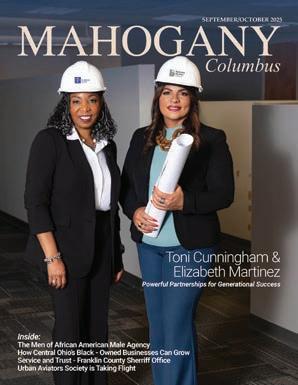
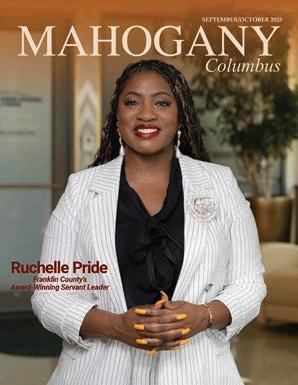
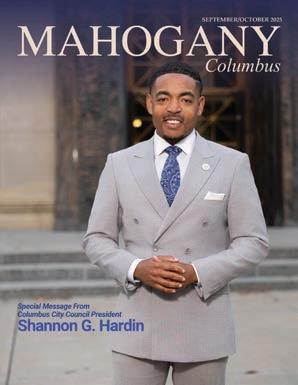
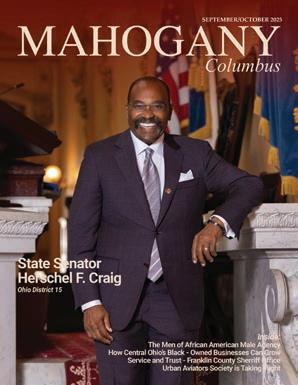
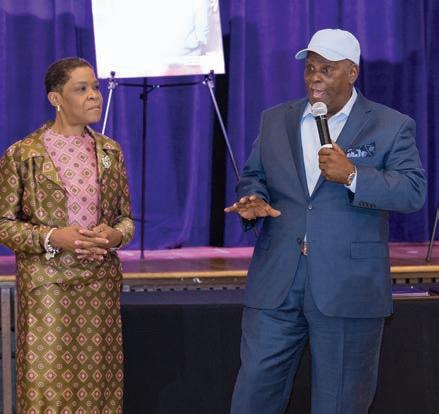


Powerful Partnerships for Generational Success

Inside:
The Men of African American Male Agency
How Central Ohio’s Black - Owned Businesses Can Grow Service and Trust - Franklin County Sherriff Office Urban Aviators Society is Taking Flight







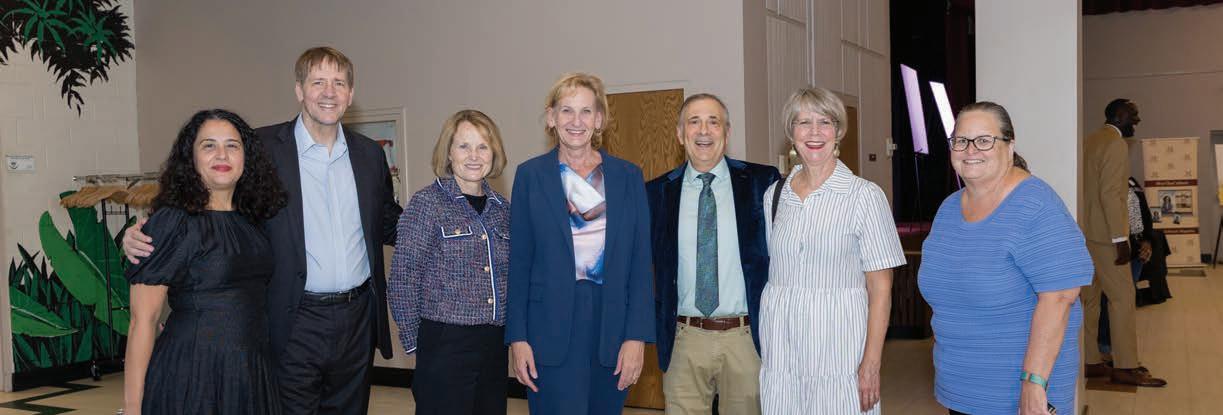
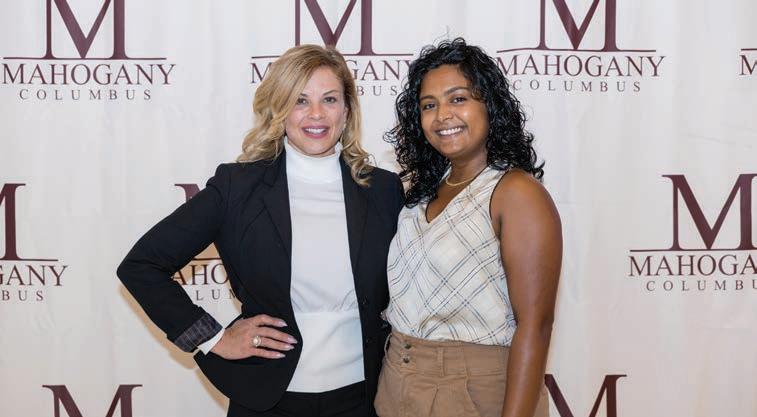
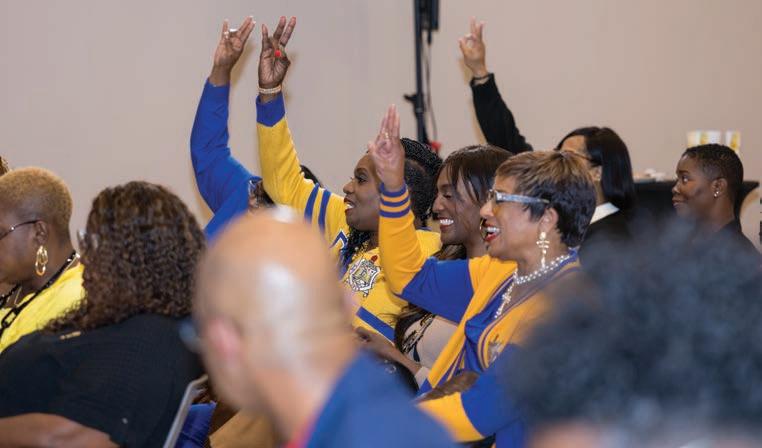
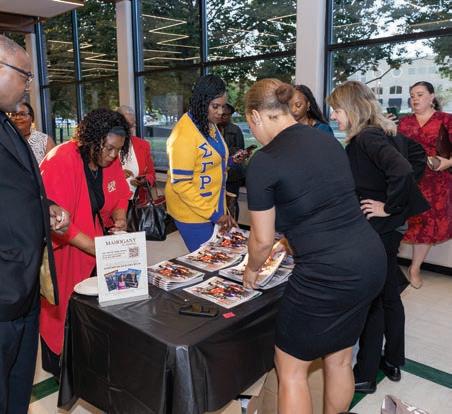
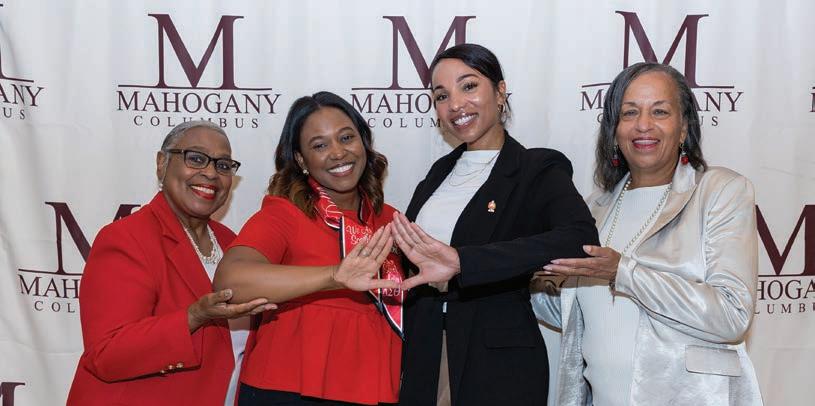
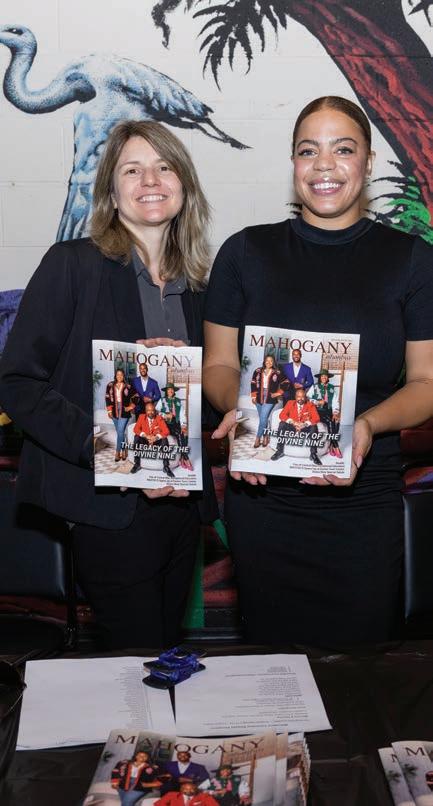
THURSDAY, SEPTEMBER 4TH, 2025
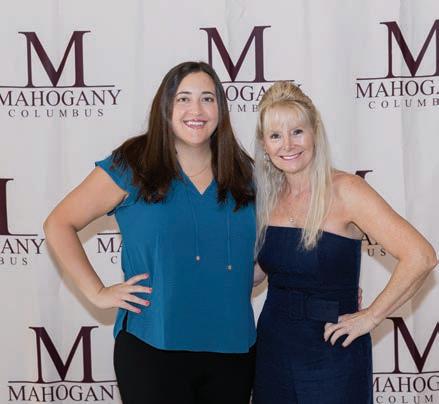
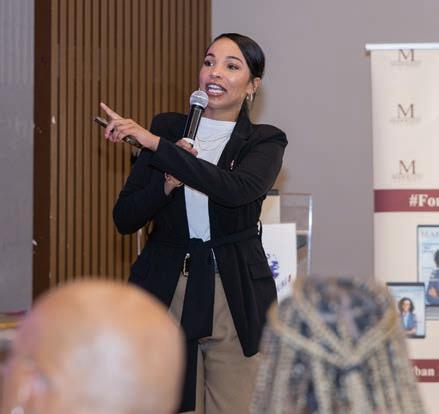
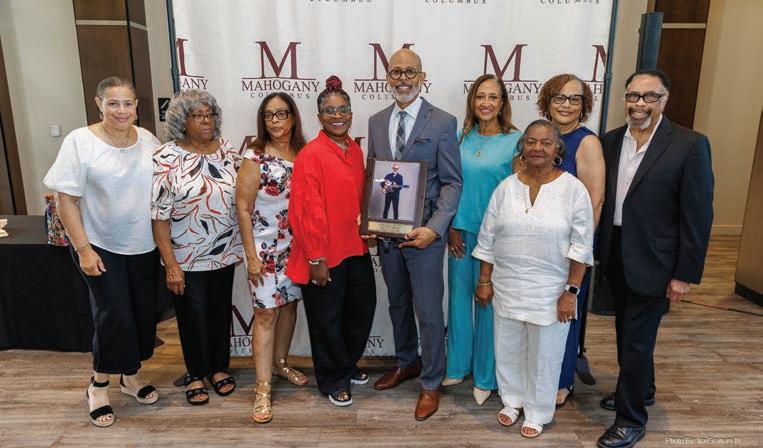
THURSDAY, SEPTEMBER 4TH, 2025
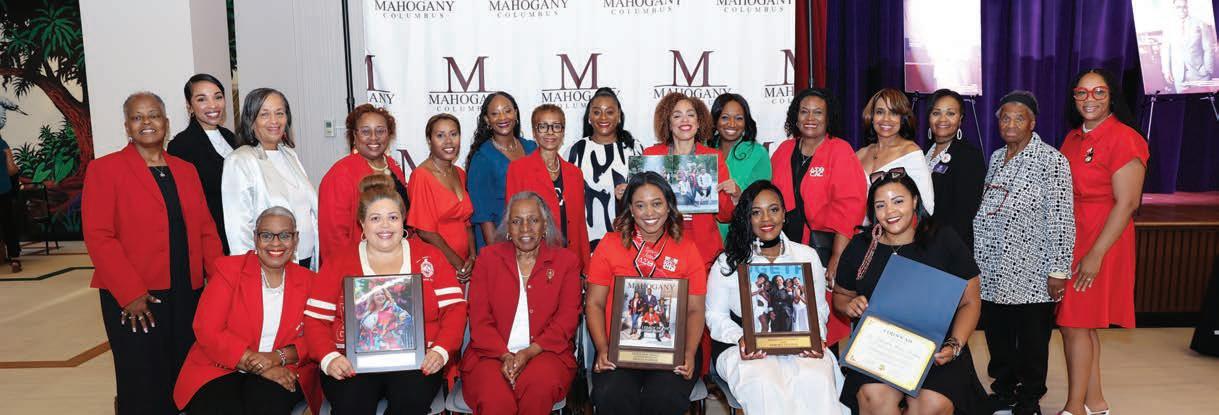
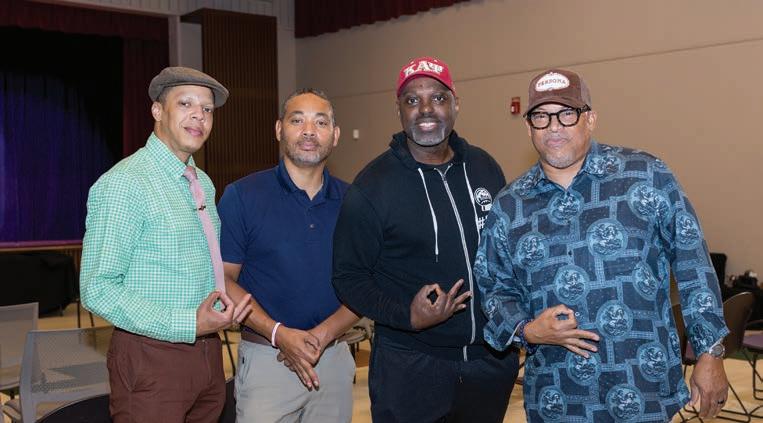
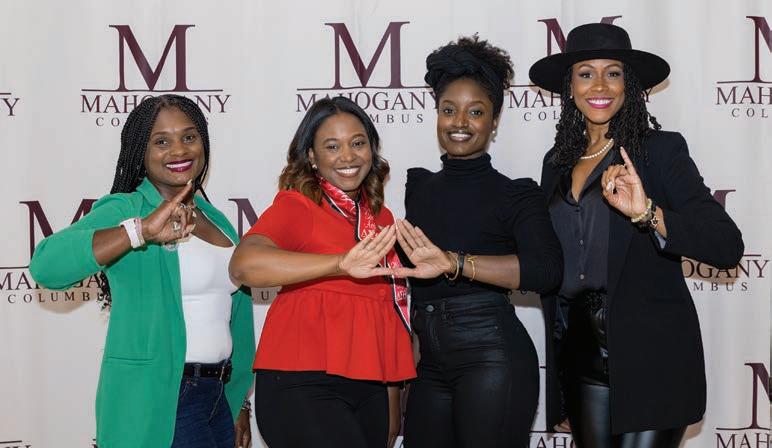
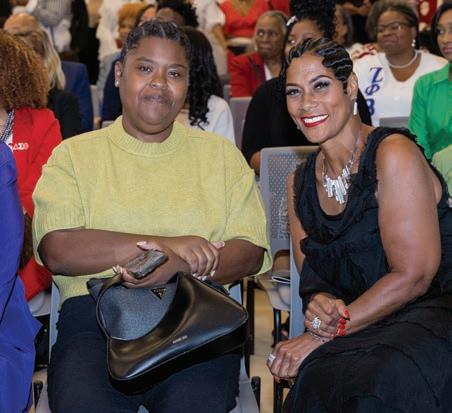
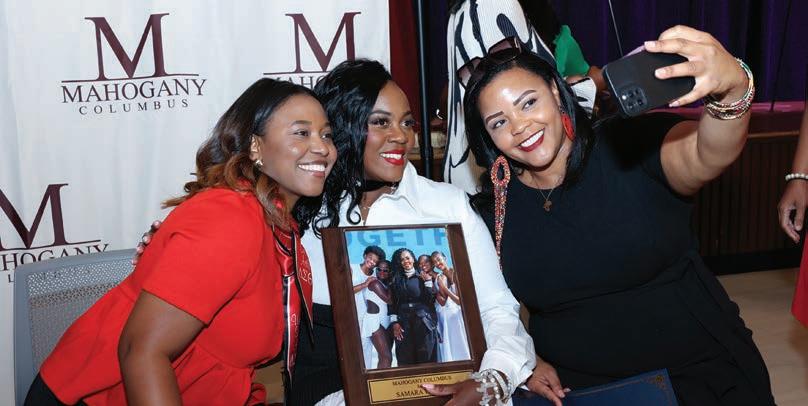
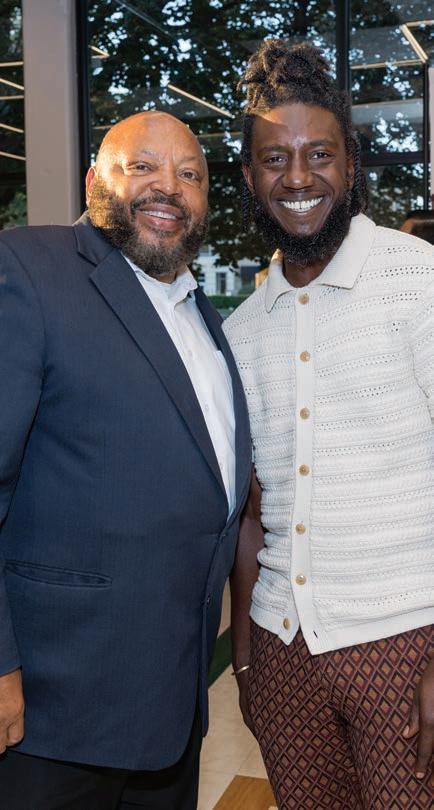
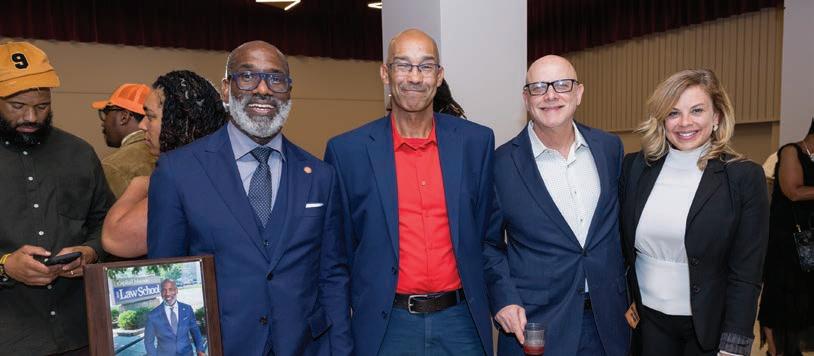
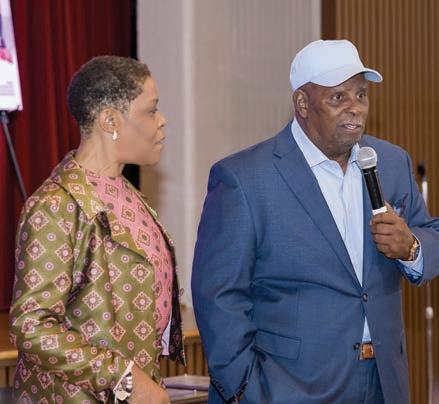

SGT. Nicholas Williams, Executive Director of the Urban Aviators Society exposes students to the aviation industry. Page:


By C. Sunny Martin
Iam often asked what skill does it takes to become a successful entrepreneur? Well, here are the 8-skills I believe every successful entrepreneur should master:
Resiliency. The ability to weather the ups and downs of any business since it never goes exactly the way the business plan described it. This skill enables the entrepreneur to keep going when the outlook is bleak.
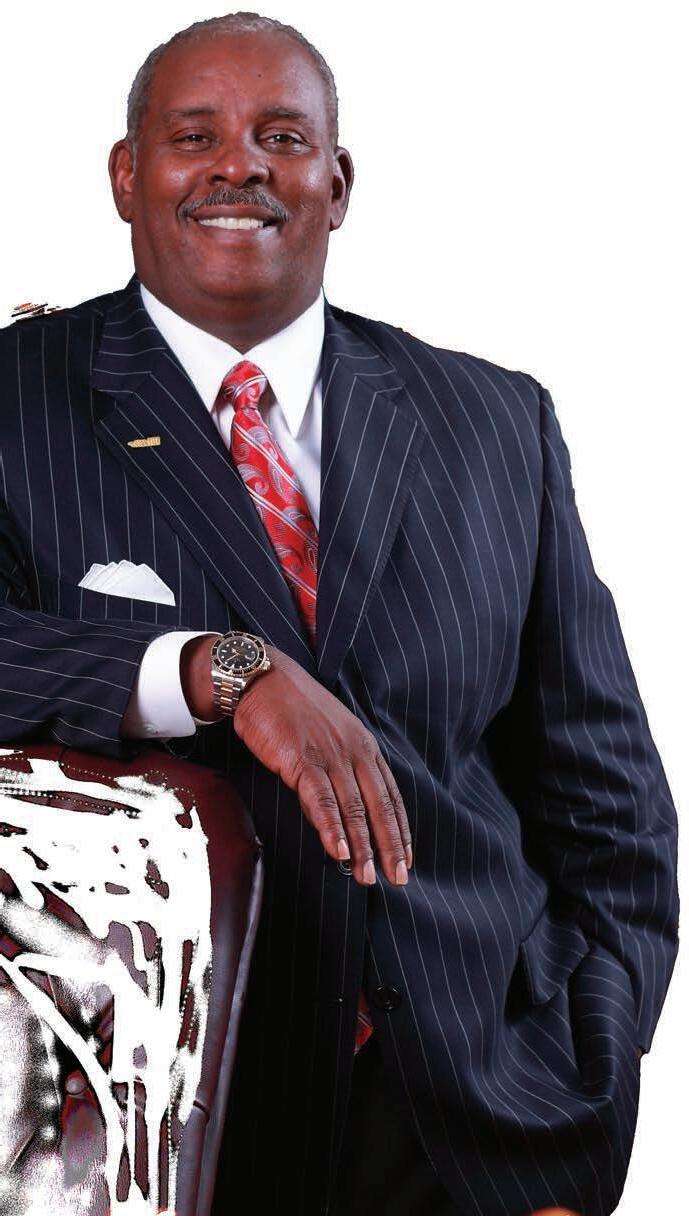
Focus. After setting a long-term vision, knowing how to “laser focus” on the very next step to get closer to the ultimate goal. There are so many distracting forces when trying to build a business that this skill is not easy to master. Block out the naysayers and stay laser focused on scaling your firm.
Invest for the long-term. Most entrepreneurs are not patient and focus only on what comes next, rather than where the company needs to go. Overnight success may take 7 to 10 years. Entrepreneurs need to stop, pause and plan on a quarterly basis.
Know How to Recruit and manage people. Only by learning to leverage employees, vendors and other resources will an entrepreneur build a scalable company. They need to learn to network to meet the right people. Entrepreneurs strive to guarantee they will get honest and timely feedback from all these sources.
Sales. Every entrepreneur is a salesperson whether they want to be or not. You are either selling your ideas, products or services to customers, investors or employees. They work to be there when customers are ready to buy. Alternately, they know how to let go and move on when they are not.
Knowledge. Successful entrepreneurs realize they don’t know everything, and the market is constantly changing. You should be reading all the business news in your industry. Additionally, you should stay up to date on new systems, technology, and industry trends.
Self-reflection. Allow downtime to reflect on the past and plan for the future. Always working only leads to burnout physically and emotionally.
Self-reliance: While there is a lot of help for the entrepreneur, in the end, they need to be resourceful enough to trust their gut and always be connected to a mastermind group of other successful entrepreneurs.

Feburary 2026

Black-Owned Business Breakfast Forum
• Members Free • Non-Members $20 00


Tuesday November 11th 8:30 am - 10:30 am


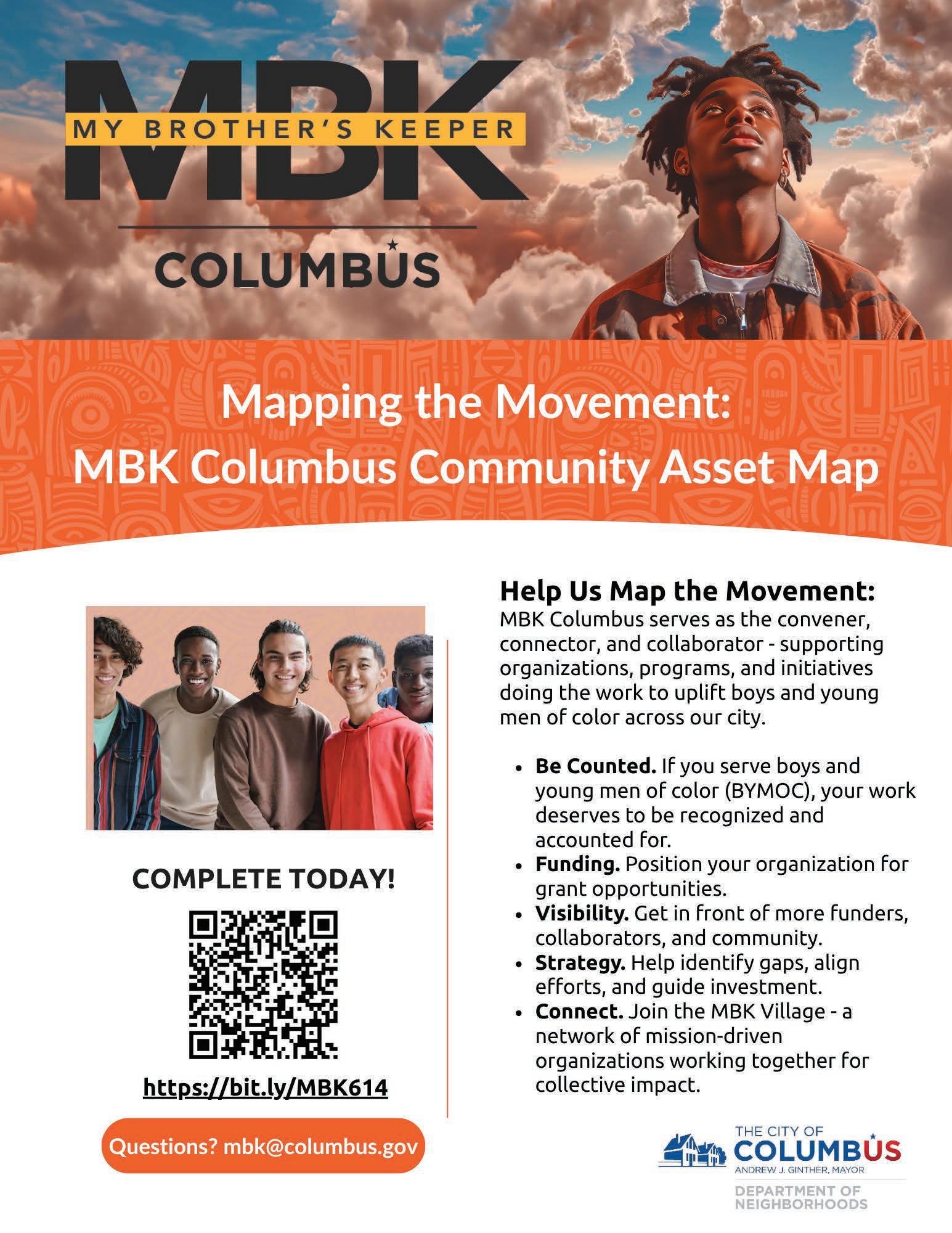
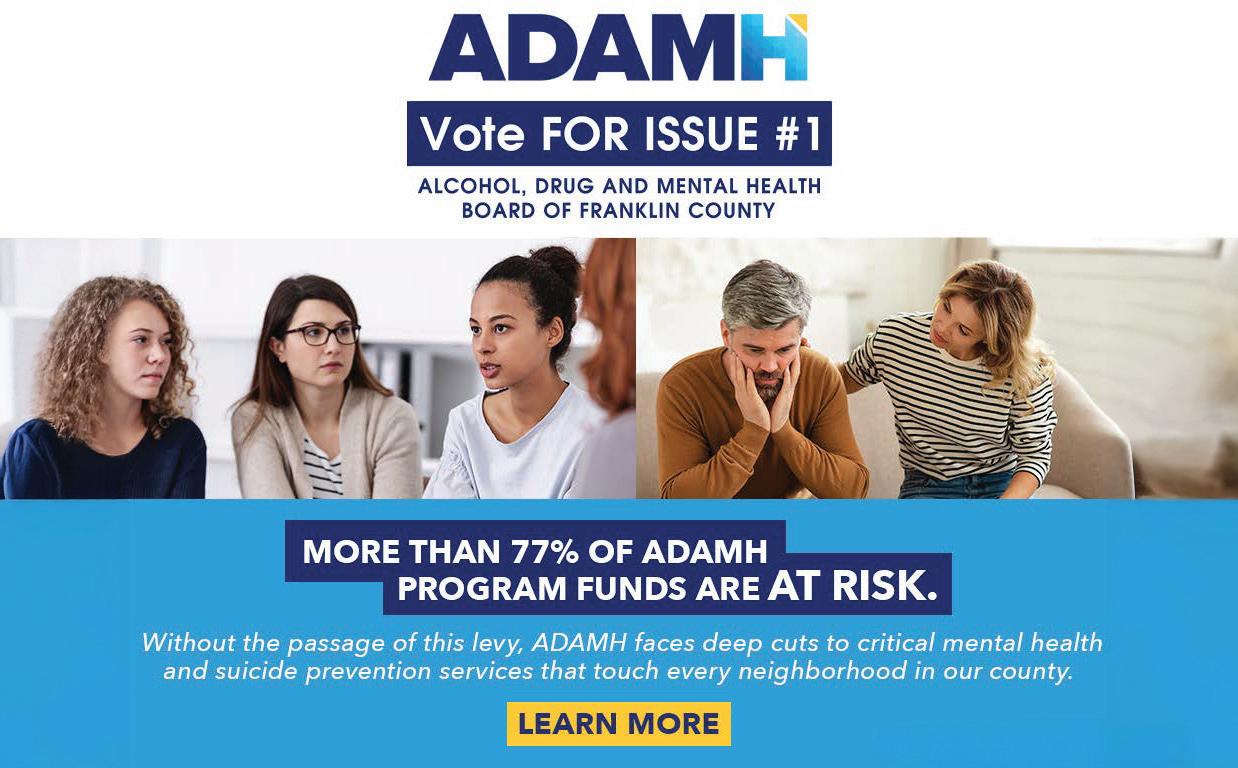



We can help.

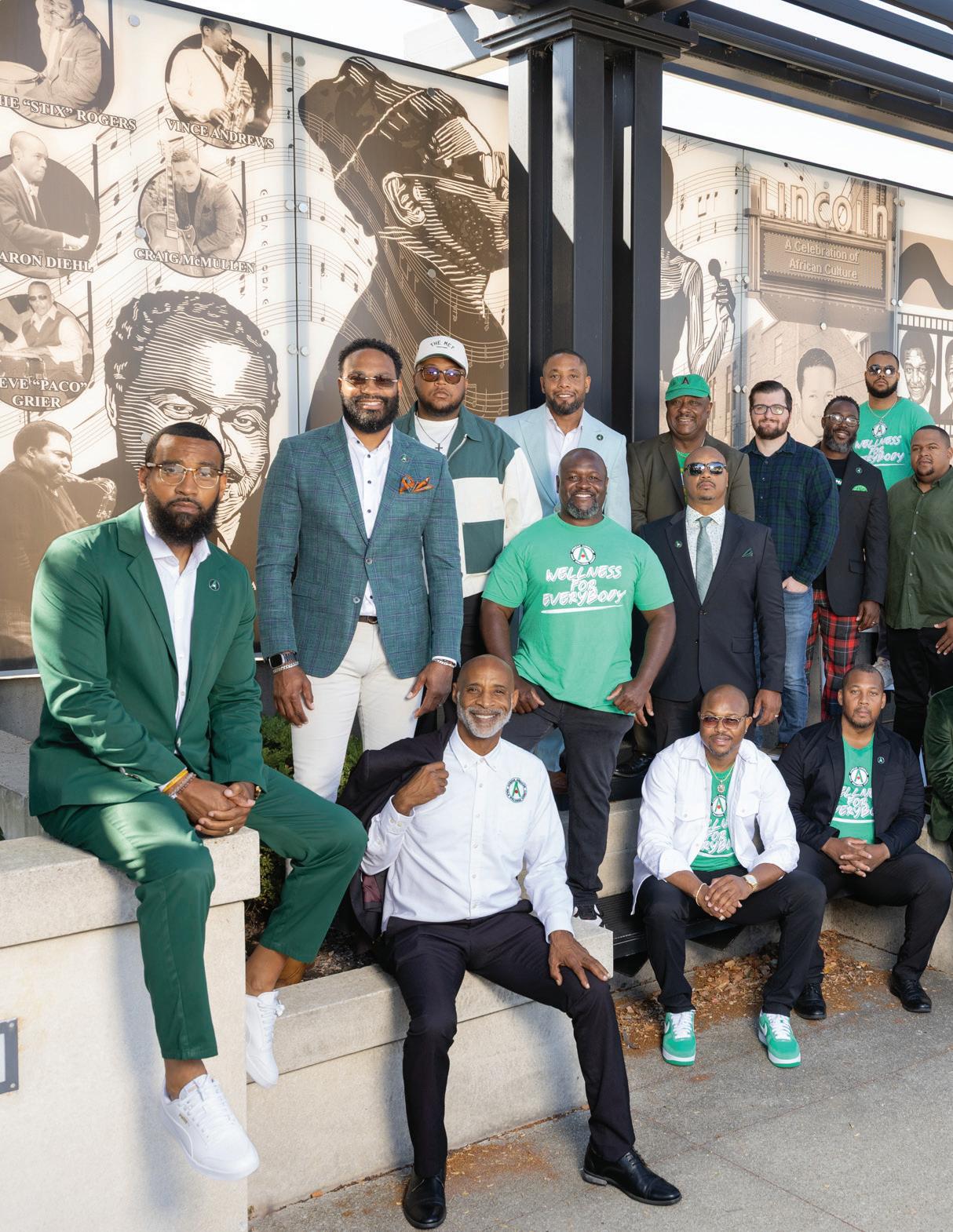
The Men of African American
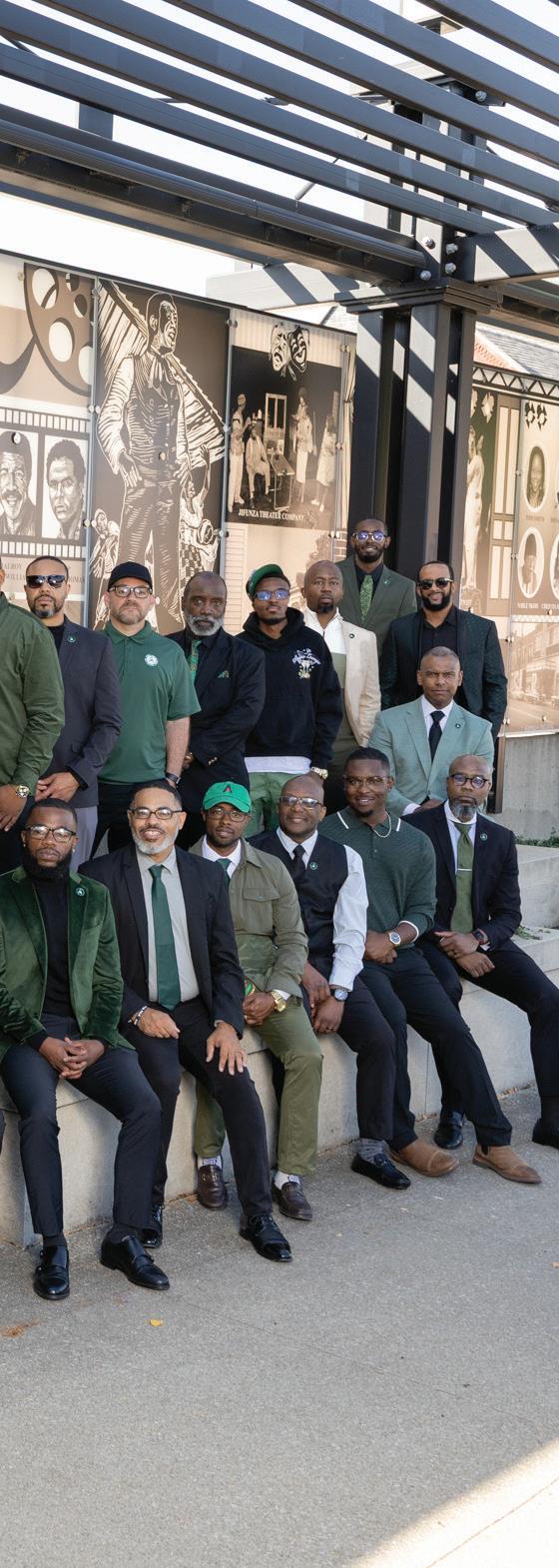
How Black Men Are Leading a National Wellness Initiative
For over 25 years, the National Center for Urban Solutions (NCUS) has advanced a simple but powerful idea: when wellness, education, and workforce development move together, entire communities rise. What began in Columbus, Ohio, has grown into a multi-state movement driven by outcomes and led by the people most affected.
The African American Male Wellness Agency (AAMWA), the health arm of NCUS, is part of this ecosystem alongside the Academy for Urban Scholars (education) and NCUS TEC (career school). AAMWA focuses on improving Black men’s and their family’s health through prevention, access and trust.
At the heart of the work is visibility: Black men leading from the front. From running Programs to guiding research cohorts they’re the engine of this national initiative.
“We launched this work to bring prevention where people live, learn, worship, and work. Our goal has always been the same: move the clinic to community, shift culture, and make wellness a family value.”
Black Men’s Wellness Day is the flagship event—part popup clinic, part block party. It features music, barbers, kids’ and seniors’ pavilions, and most importantly, free health screenings and referrals. In 2024, over 10,000 Black men were screened and 85% had high blood pressure, and more than half were didn’t know. These numbers underscore the importance of meeting men where they are, with no cost and no judgment.
Under Kenny Hampton’s leadership, AAMWA now operates in 20+ U.S. cities through a network of directors and outreach teams. “Our north star is simple,” says Hampton. “Save Black men’s lives—by removing barriers, building trust, and turning a health check into a long-term relationship with care and community.”
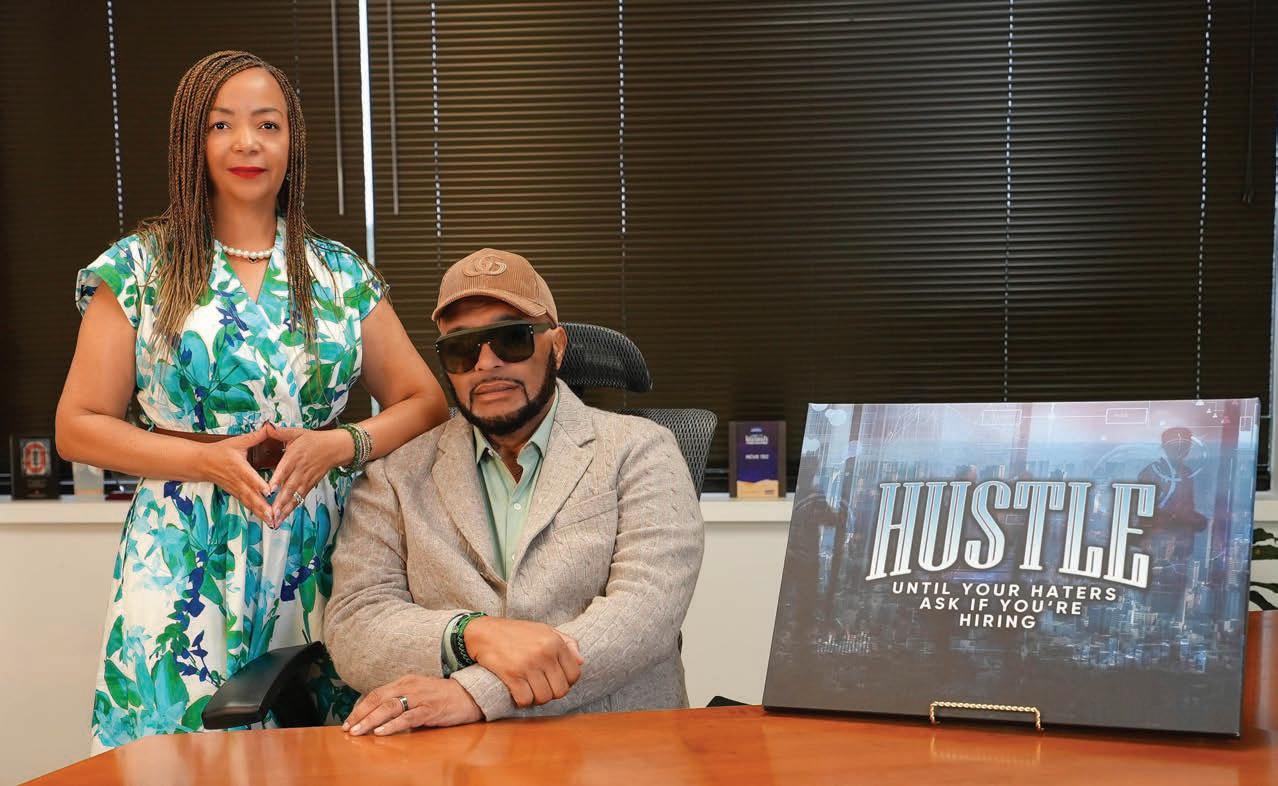
Core Programs and Impact Areas:
Black Men’s Wellness Day: Held annually across cities, this “most fun doctor’s appointment” includes free screenings (blood pressure, glucose, BMI, mental health, prostate, HIV), fitness activities, and immediate referrals.
Fatherhood: Programs like “Calling All Dads” equip men with tools for bonding, school readiness, and stability. Father involvement is tied to better outcomes, especially when 76% of Black children aren’t kindergarten-ready.
Mental Wellness: “Real Men, Real Talk” brings men together for open conversations over dinner, moderated by clinicians, to address stress and stigma around mental wellness.
Financial Wellness: With partners like Telhio Credit Union, AAMWA integrates budgeting, savings, and financial tools into health events because economic stress is also a health risk.
Opioid Awareness: Community education on addiction is delivered through the same trusted spaces that power Wellness Day events.
Founders’ Note — Drs. John & Pamela Gregory “We launched this work to make prevention culturally accessible right where people live, worship, learn, and work. The vision has always been the same: clinic to community, change the culture around health, and make wellness a family value.”
Uplift Her: A fast-growing movement for women of color offering screenings and culturally specific health education, especially around cardiovascular disease and cancer prevention.
Research-Driven Change: Black Impact 100
Launched with The Ohio State University, the Black Impact 100 initiative enrolls Black men in a 24-week program based on the American Heart Association’s Life’s Essential 8. Participants track health metrics while also becoming ambassadors for wellness in their communities.
“This is data-driven, culturally-rooted change,” says Hampton. “We measure what matters—screenings, follow-ups, fitness, and financial wins. Each number is a longer life.”
Because NCUS is one connected system, men who come for a screening can also access career training through NCUS TEC or continue education through AUS high schools—proof that health and economic mobility go hand in hand.
AAMWA hosts events in cities like Atlanta, Birmingham, Charlotte, Chicago, Cincinnati, Dallas, Detroit, Houston, Los Angeles, Memphis, Philadelphia, and more. Each city puts its own spin on events celebrating wellness together.
The Mental Wellness Tour features celebrities like Marlon Wayans, Master P, and Anthony Anderson bringing humor, heart, and honesty to mental health conversations in major cities.
“We’re proud of the thousands of Black men, staff and volunteers making this happen,” say Drs. John and Pamela Gregory. “Every screening, every paycheck, every father showing up is a generational shift. This is what it looks like when community becomes the clinic and data becomes destiny.”
The Mandate
When 85% of men screened have hypertension and most don’t know it’s not a participation problem; it’s an access and trust problem. AAMWA is built to solve exactly that.
Stronger Follow-Up: More care navigation so every screening leads to a kept appointment.
Expanded Research: Larger cohorts for both Black men and women under Black Impact and Uplift Her. Financial Tools at Scale: Embedding banking partners at every Wellness Day.
Mental Wellness: Replicate Real Men Real Talk in every City
To get involved, visit ncusolutions.com.
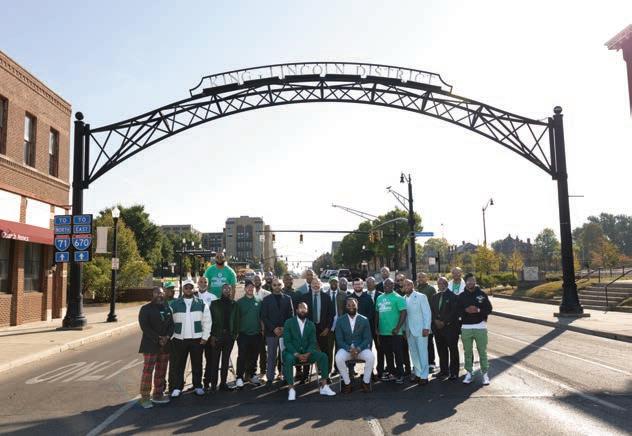
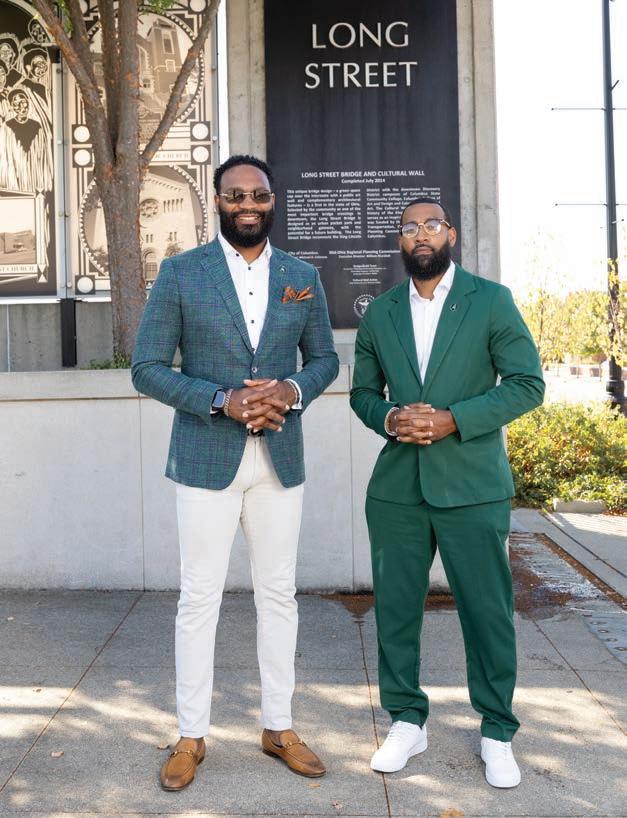

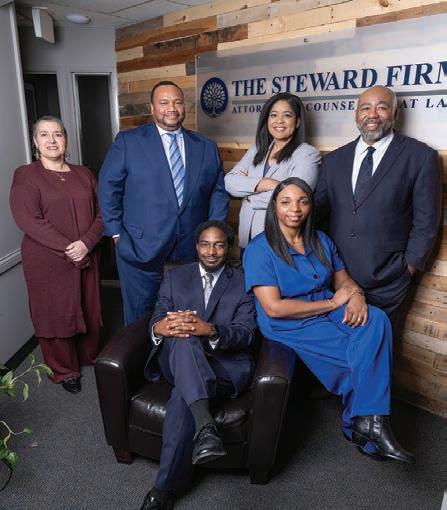

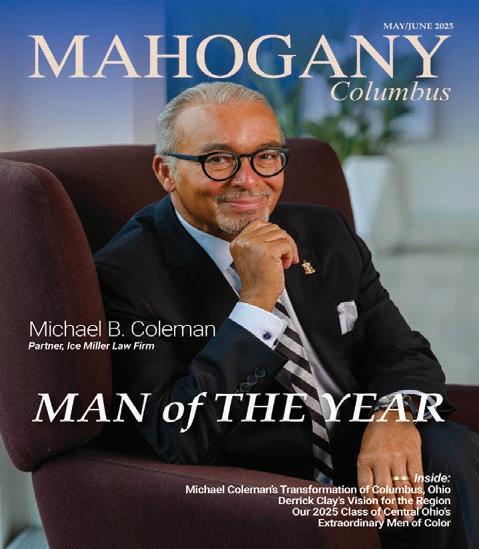
The federal government shut down at 12:01 a.m. on October 1st. Analysts estimate the national economy could shed billions in output each week, magnifying the ripple effects of delayed paychecks, paused agency work, and frozen approvals. Ohio alone has more than 80,000 federal workers facing furloughs or missed pay checks, and Central Ohio leaders warn the longer the shutdown lasts, the deeper the local financial instability.
Now, more than ever, it’s crucial for business owners and managers to lead with empathy and understanding. The shutdown’s financial shock is only the beginning—families in our community are facing skyrocketing food costs, persistent inflation, and new policy changes that make daily life even harder. On top of this, challenges like new immigration rules, shortages in education resources, and the deepening affordable housing crisis have pushed anxiety to new heights. People are genuinely scared, and this fear affects not just their personal lives but also how they show up as employees, customers, and neighbors.
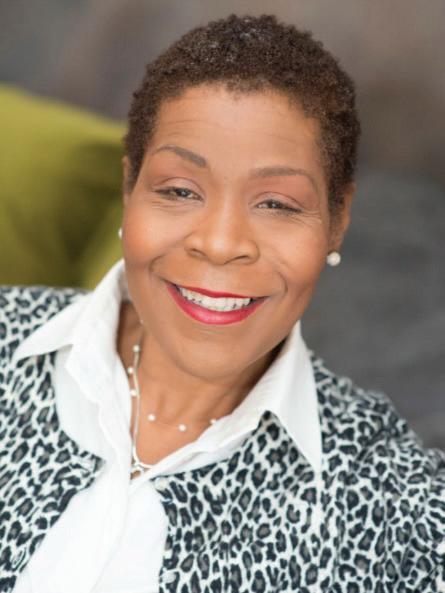
By Melinda Carter Executive Director Columbus Business League
As leaders, showing compassion and flexibility is not just the right thing to do; it’s essential for business success. Healthy, supported people are the backbone of strong businesses and vibrant communities. Prioritizing empathy and support during this time will not only help your staff and customers weather the storm—it will strengthen relationships and build resilience for the future.
In these turbulent times, the importance of truth telling cannot be overstated. As Kendrick Lamar powerfully puts it, “turn the TV off”—a reminder that today’s airwaves are saturated with half-truths and gaslighting myths that fuel fear and leave many decision makers uninformed or misinformed. For Black-owned businesses in Central Ohio, honest and transparent communication is not a luxury; it’s a necessity.
Business owners must be “truth tellers,” actively working to dispel rumors, clarify facts, and foster open dialogue. By prioritizing honesty, leaders not only build trust with their teams and customers but also create an environment where critical thinking can thrive. This approach empowers individuals to make informed choices that uplift, rather than harm, the community. In moments of uncertainty, telling the truth isn’t just the right thing to do—it’s a catalyst for resilience, unity, and progress.
Finally, shutdowns are temporary; relationships and reputation are durable. Protecting cash, preserve the trust and goodwill you have built with customers, employees, and your community. While the current disruption may feel overwhelming, it will pass—and the actions we take now will shape our future resilience. By working together, supporting one another, and staying adaptable, we can mitigate both immediate and long-term challenges. Change is inevitable, but with collective effort, we can safeguard our businesses and emerge stronger when stability return.

AVision for Representation.
When Franklin County Sheriff Dallas Baldwin envisioned the future of the Franklin County Sheriff’s Office, he knew real progress meant more than new buildings or even the James A. Karnes Corrections Facility. It meant building a team that reflected the community it serves. Growth meant more than just numbers. The Sheriff wanted deputies and civilian employees who represent the diversity of Franklin County, share its lived experiences, and uphold its values.
That vision led to the creation of the Recruitment, Diversity, Equity,
and Inclusion (RDEI) Division. In November 2022, Chief Marvin Hill was appointed to lead the effort. Hill, a retired Ohio State Highway Patrol, Captain of Recruitment and Diversity brought with him both experience and heart. Soon joined by Major Levente Berry and later Director Aaron Whitfield, the team grew into what it is today: thirty strong, deputies and civilian employees working side by side to strengthen what service, trust, and impact mean for Franklin County.
Since its inception, the division has hired more than 220 deputies and countless civilians, breaking records and barriers. But the
numbers are only part of the story.
“Every role matter,” says Chief Hill. “Our duty is to listen, love, serve, and lead. Every positive interaction is an opportunity to make a difference in the lives of others.”
This philosophy fuels the four pillars of the division: recruitment, background investigations, DEI education, and community engagement. Together, they move with one purpose—impact.
At the center of this effort is Sergeant Cora Day, who leads the recruitment team. For her, this isn’t just about job openings. “We’re not just hiring,” she explains. “We’re
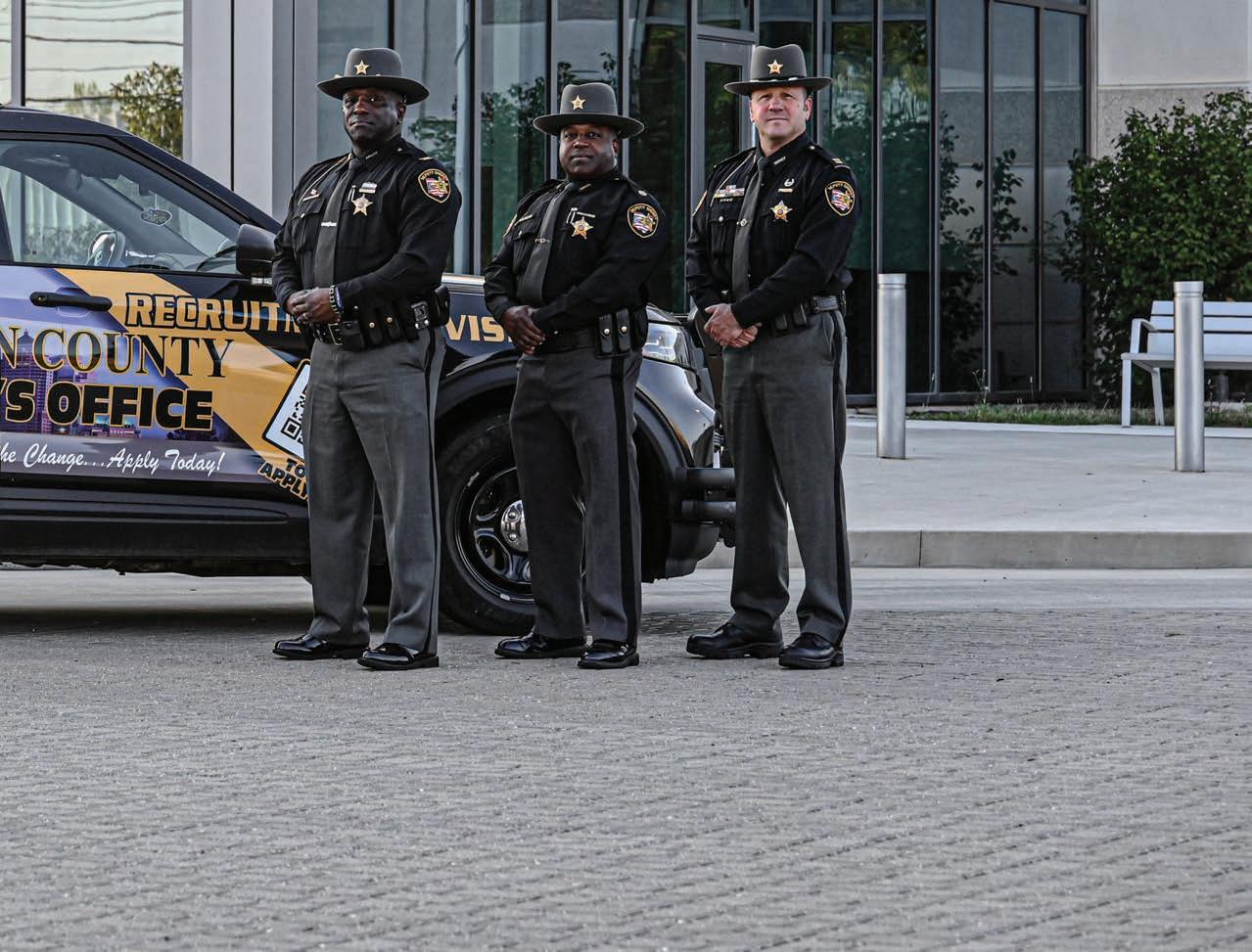
seeking people with both skill and heart. That’s what ensures our future is rooted in compassion and care.”
This proactive approach—meeting residents where they are in schools, colleges, churches, and cultural gatherings—has produced the most diverse applicant pool in the Sheriff’s Office’s history. As Major Berry notes, “When we recruit someone from the community, they bring lived experiences and cultural awareness that make us better. They help us see differently, connect differently, and serve differently placing lived experience at the center of public service.”
Strong recruitment requires equally strong standards. The background investigations team, led by Sergeant Nick Williams and supported by Lieutenant Virgil Neal, ensures each candidate embodies integrity and trust.
“Our work is about more than background checks,” Williams says. “It’s about character. Who we bring in shapes the kind of Sheriff’s Office the community sees.”
For Neal, born and raised in Columbus, this responsibility feels deeply personal. “I grew up here,” he shares. “I know the neighborhoods and the people. That makes me accountable to
make sure this office reflects the best of our community.”
For Captain Dan Johnson, the key to long-term trust is adaptability. “The FCSO is always evolving,” Johnson explains. “Our training, strategies, and policies must reflect today’s realities, not yesterday’s. That’s how we stay relevant. That’s how we stay trusted.”
That adaptability has resulted in expanded interpreter services, new training approaches, employee mentoring programs, and stronger connections with Franklin County’s diverse population.
Director Aaron Whitfield frames the work as creating bridges. Under his leadership, the division has donated more than 15,000 books to schools and community centers, built two school libraries for children, and launched wellness programs and DEI workshops for both deputies and civilian staff.
“Every obstacle is an opportunity,” Whitfield says. “We’re focused on creating pathways that connect our agency and our community. Inside the Sheriff’s Office, employees are shaping a culture of care and growth. Across Franklin County, we’re opening doors and creating opportunities that change lives. I’m grateful to stand with a team whose passion fuels lasting impact—within this agency and for the people we serve.”
The story of the RDEI Division is far from finished. With each day, the team continues to deepen school partnerships, expand wellness programs, and create intentional pathways for the next generation of public servants. The mission is rooted in legacy—ensuring that service is not just done but done with dignity, equity, and compassion.

The invitation to ‘Make Change Happen’ remains open. The Franklin County Sheriff’s Office is currently hiring for both deputy and civilian roles—offering the chance to serve, grow, and lead in a community that reflects who we are.
Scan the QR code below to explore current openings and apply today. Join us!
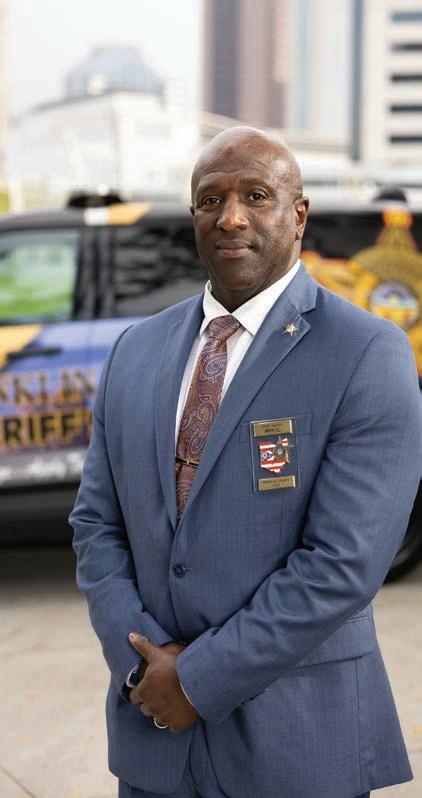
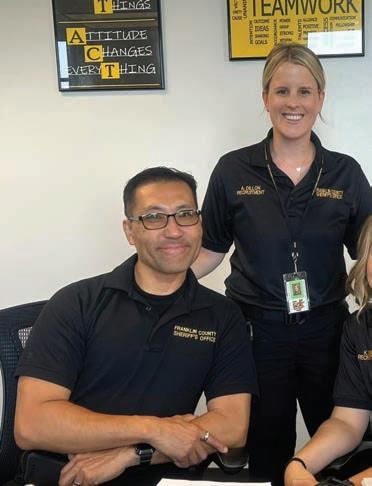

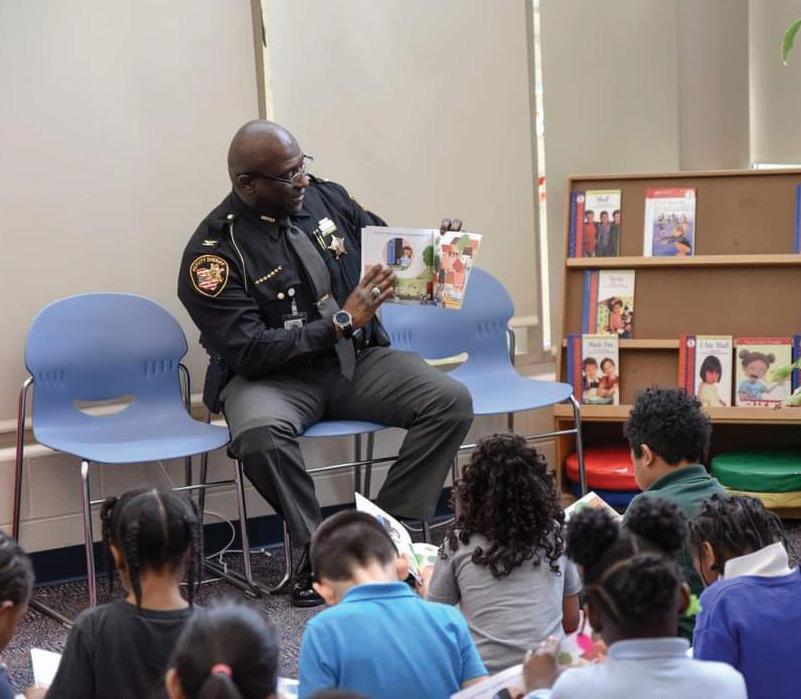

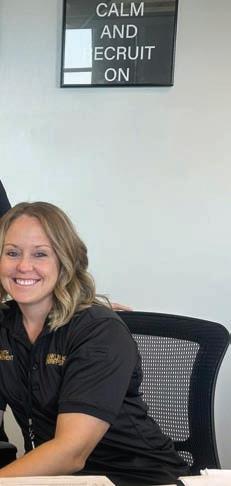
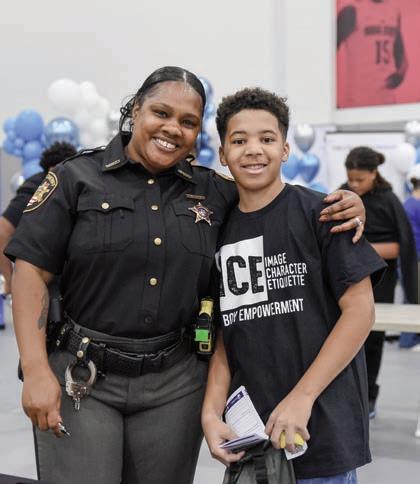
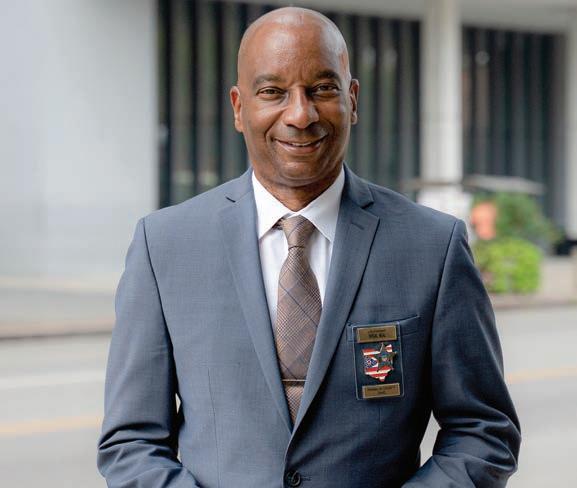
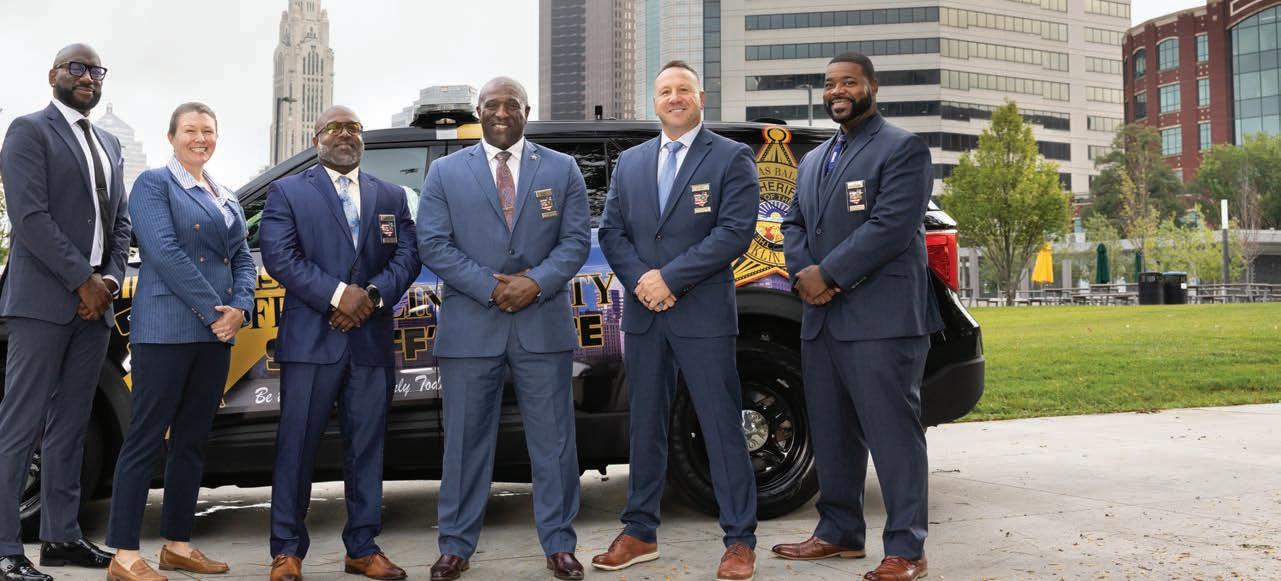
- William Gladstone
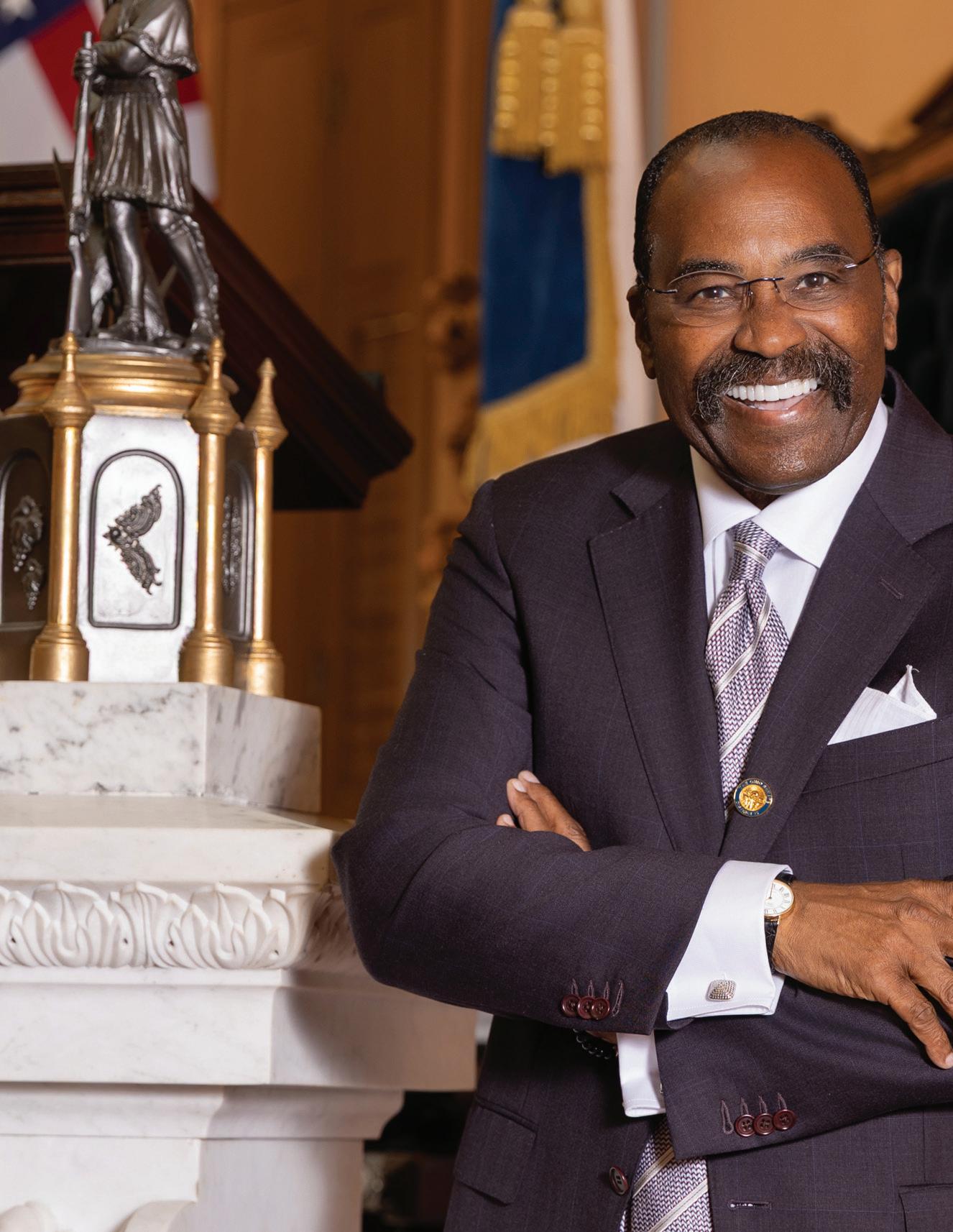
PHOTOGRAPHY
PURPLE STAR PHOTOGRAPHY

By State Senator Hearcel F. Craig
In his seminal book Why We Can’t Wait, the Rev. Dr. Martin Luther King Jr. wrote about “the fierce urgency of now.” He reminded us that justice delayed is justice denied. The cost of a vote in this country has always been steep, paid for with the blood of martyrs. From the defiance of Rosa Parks and the Montgomery bus boycott to the marchers that crossed the Edmund Pettus Bridge, where John Lewis was nearly beaten to death, every step toward justice was hard fought.
The Voting Rights Act of 1965 was born from the sacrifices of those who refused to cower at the likes of Bull Connor, George Wallace, and the terror that took the lives of Medgar Evers, James Chaney, Andrew Goodman, and Michael Schwerner. It was the leadership of Fannie Lou Hamer, Shirley Chisholm, Adam Clayton Powell Jr., and the countless, often ordinary people who carried our movement forward and changed this nation’s landscape.
The four little girls murdered in a Birmingham church on a Sunday morning—Addie Mae Collins, Cynthia Wesley, Carole Robertson, and Carol Denise McNair—remind us that the right to vote was fought and died for.
Here we are, in 2025, facing a renewed erosion of civil and voting rights in the United States.
Access to healthcare and education are being stripped from Americans, and federal occupation of our cities threatens our most basic freedoms. We must ask ourselves how we are going to respond to the conditions that affect so many of the marginalized and most vulnerable among us.
In his poem, The Present Crisis, the abolitionist James Russel Lowell wrote:
Truth forever on the scaffold, Wrong forever on the throne, Yet that scaffold sways the future, and, behind the dim unknown, Standeth God within the shadow, keeping watch above his own.
While these words were in reference to the Civil War, they are timeless. Ours is a great nation, but democracy is fragile, and this is not a spectator process. Elections have consequences. It is our obligation and responsibility as citizens of this republic. None of us can afford to sit on the sidelines.
The essential question is, how do you measure the cost of a vote? Our children and our children’s children are demanding action. It is not hyperbole to say our lives depend on it. We are not powerless. Our vote is our voice. Let’s go to work! God bless you.
Last fall, my niece called me in tears.
She’s a college student, works full-time, and cares for her grandmother. But instead of talking about classes, she said: “Uncle, we got an eviction notice.”
Their apartment had just been bought by an out-ofstate company. The rent jumped $500 overnight. For her, Columbus’ growth hasn’t meant opportunity. It meant displacement.
And she’s not alone. Too many of our neighbors— Black families, seniors, working parents—are being priced out of the communities they built. Property taxes rise, rents spike, and investors treat our neighborhoods like chessboards. Growth brings prosperity for some but pushes others into instability.
This isn’t new. My grandmother was displaced decades ago when a highway cut through the
near east side, ripping apart families and businesses in the name of “progress.” That legacy of disconnection still shapes our city. And unless we act boldly, today’s boom will repeat that story—pushing out the very people who made Columbus what it is.
Growth is good. It means jobs and resources. But for who? If it’s not for all, it’s not for us.
The truth is, Columbus stands at a crossroads. We are adding thousands of jobs, and that’s a tremendous opportunity— if we prepare for it. That’s why I championed the Columbus Promise, which provides free community college tuition to Columbus City Schools graduates –of which 80% are young people of color. When we invest in residents, we make sure the benefits of growth reach every corner of the city.
But opportunity must also mean a roof over our
heads. Too often, decisions about development happen between City Hall and big developers. Everyday people—and trusted community anchors—get left out.
Take our churches. For generations, Black churches have been more than houses of worship. They’ve been pillars of stability, service, and hope. Today, many sit on underutilized land that could become affordable housing, senior housing, or mixed-use spaces—helping their ministries thrive while strengthening their neighborhoods.
That’s why I’m pushing a “Yes in God’s Backyard” proposal to empower faith communities to build affordable housing on their land. This honors their historic role while unlocking desperately needed housing.
On the Near East Side, churches are already leading. With partners like PACT and Ohio State,

THE VISION FOR BLACK COLUMBUS MUST BE ONE WHERE WE ARE NOT PUSHED ASIDE BUT PUSHED FORWARD.
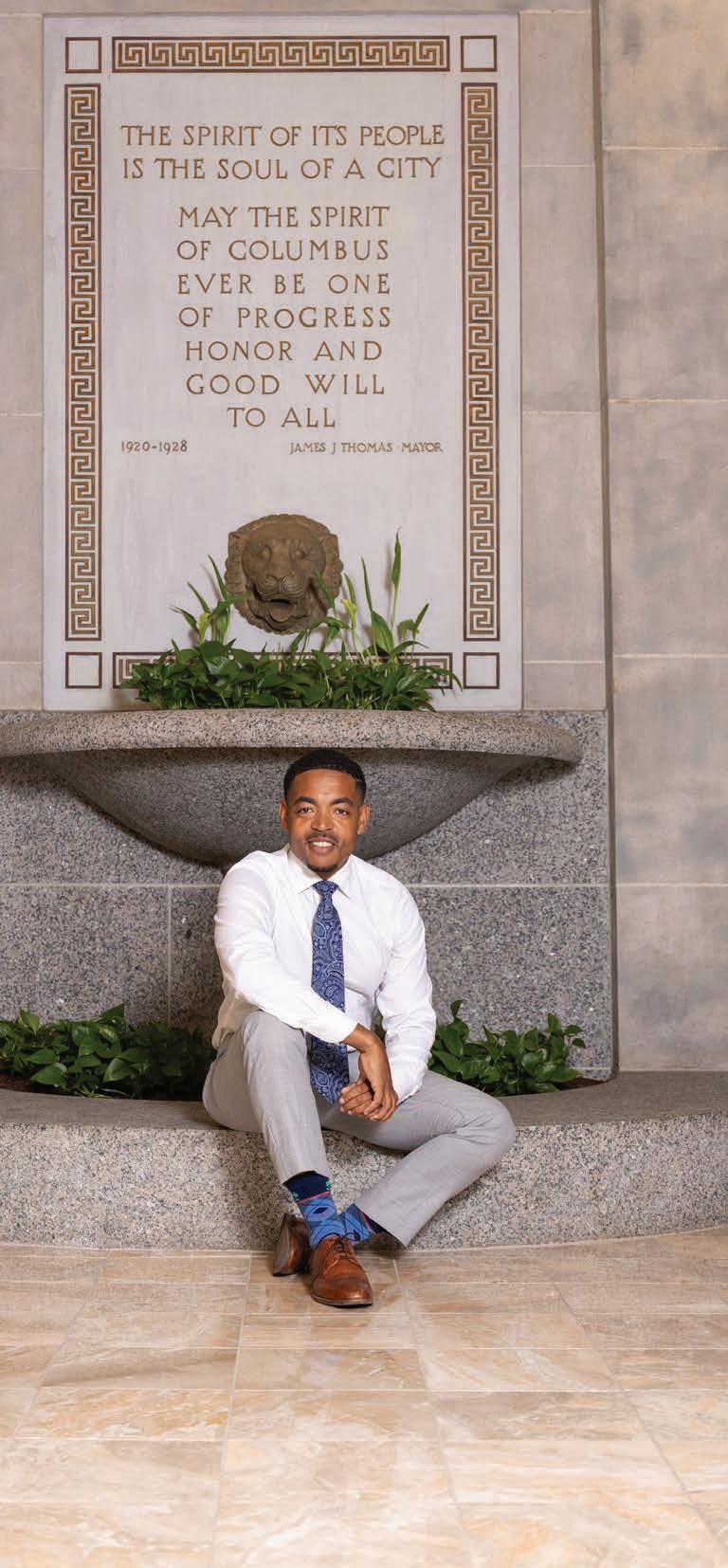
congregations are transforming land for housing and community benefit. That’s what it looks like to cut our people in on the deal—empowering institutions rooted in the neighborhood, not just reacting to outside forces.
We also need to protect longtime residents who are already here. That means strong tenant protections, so families aren’t evicted overnight. It means targeted tax relief so seniors on fixed incomes can stay in the homes they worked a lifetime to keep. And it means exploring new models of community ownership, so the wealth generated by development stays in our neighborhoods.
Because prosperity that isn’t shared will never last. If growth only means stadiums, coffee shops, and condos— while working families can’t stay in their homes—then Columbus will have lost its way.
The vision for Black Columbus must be one where we are not pushed aside but pushed forward. Where the neighborhoods that raised us are not erased, but invested in. Where churches, families, and community anchors are the architects of the city’s next chapter.
The question is simple: as Columbus gets bigger, can we get better?
I believe we can. But only if we center equity, empower communities, and honor the people who built this city. Growth must not be a wave that washes us away—but a tide that lifts every one of us.
By Anthony King
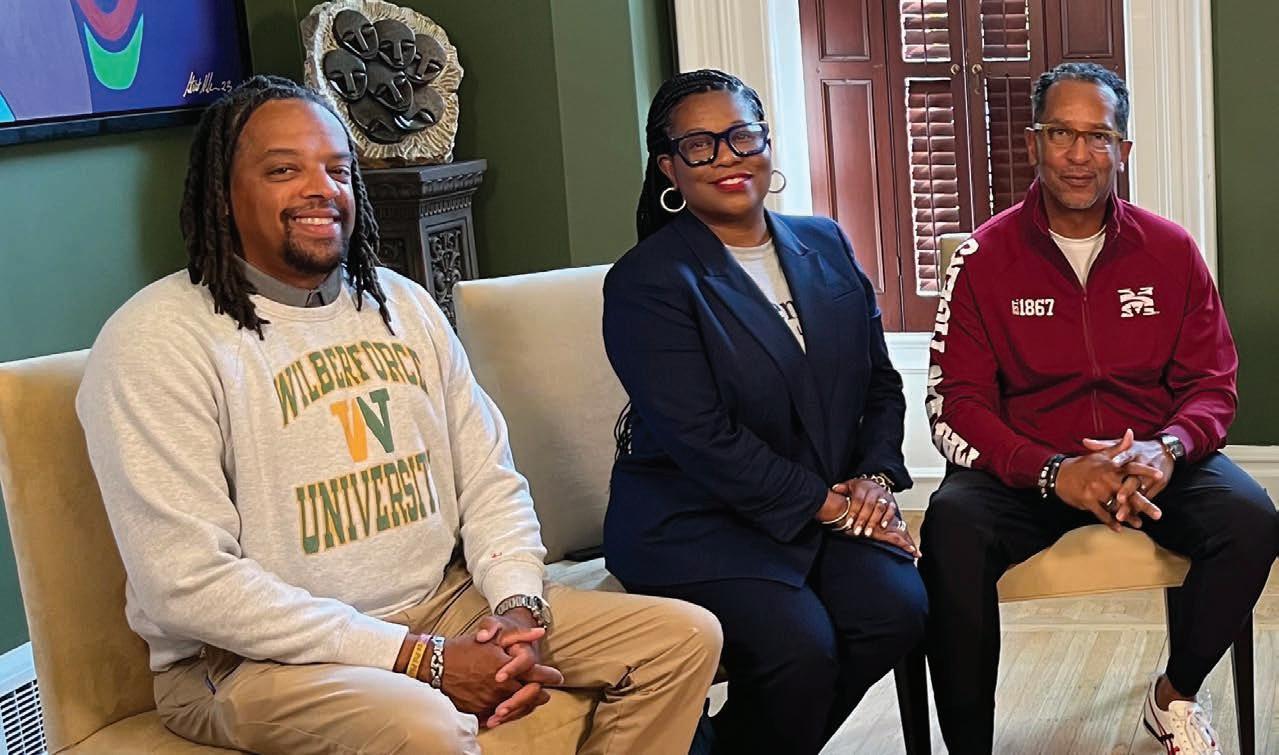
In the Troy family, love has a schedule—Sunday. The day has always been sacred. What began as an occasional gathering after church has become a cherished, non-negotiable ritual anchoring five generations. Flights are rescheduled, invitations politely declined, and at a set hour, everyone knows where they belong—around the table. “Sunday, for the most part, is non-negotiable… on Sundays, I’m at home base,” says Myeisha Harmon, a proud Bennett College graduate. It’s more than tradition; it’s a weekly act of faith, fellowship, and family that keeps the Troy legacy grounded and growing.
At those gatherings, the Troys laugh, debate, pray, and hold each other accountable in what they jokingly call the family Sanhedrin—a council of love and truth.
“Everything that we do impacts all of us… there’s a ripple effect,” adds Eric J. Troy. Over the years, this rhythm of communion has grown into the family’s moral compass. They’ve turned tradition into culture and culture into legacy.
The family’s unspoken creed, “It was the norm to be your brother’s keeper… You got me, I got you!” It is more than nostalgia. It’s a value system that has shaped
generations. For the Troys, being a brother’s keeper means standing guard over one another’s purpose, protecting not just reputation but destiny.
Faith remains the foundation beneath it all. It’s not a Sunday posture but a daily operating system—a filter through which choices are made and legacies measured. “ Rev. Dr. Keith A. Troy, who has led New Salem Baptist Church since 1983, distills it best: “At the end of the day, did I make God smile? Everything else is secondary.” His ministry in Columbus has redefined what faith in action looks like, transforming belief into community development and service into infrastructure.
family name goes on anything—a business, an idea, a partnership—it has to be worthy of it. It’s a quiet but powerful form of accountability that keeps each of them grounded in purpose. “Our parents allowed us to be ourselves… We were taught to build our own story,” says Tiffane’ Warren, a Kentucky State University graduate and daughter of Pastor Rev. Dr. Keith A. Troy. Her sister, Myeisha Harmon, and husband McKenzie Harmon (Wilberforce University) continue that lineage, extending the family’s HBCU legacy while forging their own paths.
Together, the Troys have turned family into more than tradition, it’s a framework for faith, service, and purpose. Sunday remains their sacred meeting
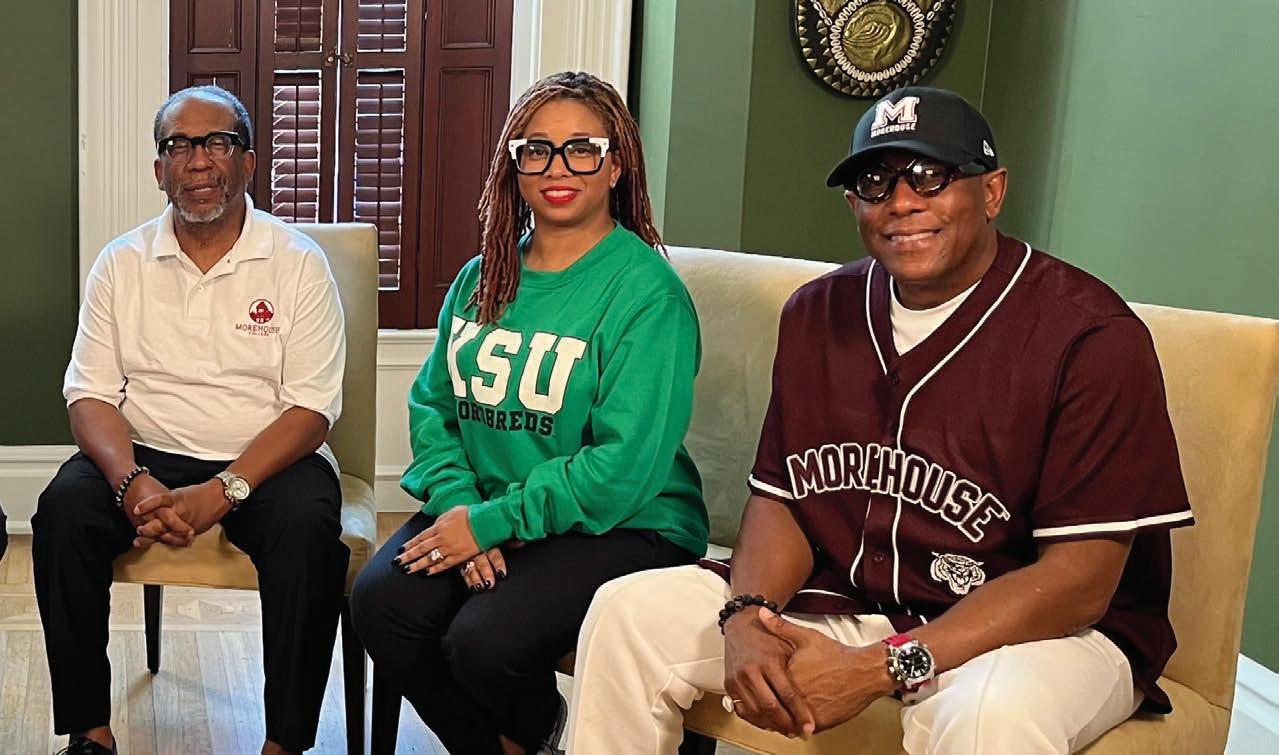
The brothers credit their time at Morehouse College for sharpening their standard. Exposure to excellence elevated their expectations and affirmed their identity. “At an HBCU, the popular kids were the ones setting the curve… it’s like moving from JV to varsity academically,” recalls Eric J. Troy. His takeaway was simple but profound: “Your best currency is your last name, not a degree.”
That idea of the name carries deep meaning in the Troy household. They call it the name test: before the
ground, faith their daily guide, and legacy their shared mission. They measure success not by applause but by alignment, by the quiet impact of lives touched and communities strengthened. In every space they build—whether at the table, in the church, or across the country—their legacy endures in love, truth, and intention.
Ruchelle Pride is an award-winning servant leader with almost two decades of expertise in criminal justice, youth services, consultancy, and leadership. She lends her intellectual property to a myriad of national, state, and local boards/committees to support justice-related projects with an emphasis on racial inequity, community health, and economic mobility. Raised the small but might city of Mansfield, Ohio, Ruchelle has always been a bold advocate for the left behind, looked over, and left out in society. While earning her Master of Science from the International Institute for Restorative Practices, she cemented her unapologetic commitment to social justice.
Admired as a woman who speaks truth into change, Ruchelle became the first black woman appointed as Director by the Franklin County Board of Commissioners to lead
the Office of Justice Policy & Programs (OJPP) and Court Appointed Special Advocates (CASA) of Franklin County in 2021. In her first year of Directorship, OJPP received the National Association of Counties (NACo) Achievement Award for spearheading their Youth of Incarcerated Parents Initiative in collaboration with Franklin County Job & Family Services - Family Stabilization Unit and Franklin County Court of Common Pleas - General Division.
With a stellar track record of leadership, strategy, and organizational management, Ruchelle recently achieved this historic milestone again after her appointment as Chief of Economic Innovation & Development for Franklin County which will oversee the Franklin County Economic Development & Planning agency and the alignment of countywide business, community and


workforce development initiatives geared toward creating innovative economic mobility opportunities for Franklin County residents. Her work will also include a strategic plan to address the regions affordable housing crisis and other socioeconomic barriers outlined in the Franklin County Rise Together Poverty Blueprint.
Ruchelle is a fierce agitator for prison reform and disrupting the business of mass incarceration. After conducting research and continuing her advocacy for equitable justice, she became a full voting member with the European Forum for Restorative Justice in Belgium representing the USA. Ruchelle is a distinguished Orator, Certified Professional Coach and Diversity Executive, and Founder of The Relationship ArchitectPride Coaching & Consulting, LLC. Ruchelle a recipient of several awards and recognitions including the world-renowned Marquis Who’s Who in America where she went on to grace the cover of their prestigious Millennium Magazine in 2022.
Ruchelle’s greatest and happiest achievement is being a mother of two amazing boys and overcoming challenging life experiences which ushered her into purpose and birthed her first anthology released in 2023, Shades of You II: Repositioning My Pain, Realizing My Purpose. Her philosophy of stewardship and service is simple, “How you see people is how you serve people, make sure your vision is 20/20!”
By Morgan Harper
In the days after Charlie Kirk’s death, Kimmel referenced in a monologue that MAGA supporters were trying to deny the shooter was likely conservative leaning. The chairman of the Federal Communications Commission (FCC), Brendan Carr, used veiled language to suggest Kimmel’s employer should hold him accountable for his statements or else the government may.
Within days, Disney suspended Kimmel indefinitely. Nexstar, which owns local ABC affiliates (though not in Columbus), upped the ante, announcing they would pull the show altogether. Disney and Nexstar eventually backed down after protests erupted across the country in defense of free speech, demanding Kimmel return to hosting. Disney could have taken action so quickly because of FCC Chairman Carr’s public critique of the host’s comments. Trump has made clear he is willing to use the power of government to punish anyone who contradicts him. So, even if a company like Disney has no immediate business before the president, they will try to curry favor by aligning with the administration politically. It’s the kind of corruption the Hatch Act, which bans federal employees from expressing political opinions, was designed to prevent.
While Disney’s capitulation is troubling, Nexstar’s actions to ban Kimmel’s show should raise even more alarm bells. Nexstar is currently trying to acquire another broadcast TV giant, Tegna, and become the largest broadcast conglomerate in the U.S. In Columbus, the combined company would own WCMH Channel 4 and WBNS Channel 10, which could diminish the editorial independence of each station. FCC Chairman Carr has to approve the deal before it can close, and Nexstar siding with his views about Charlie Kirk could improve the deal’s chances.
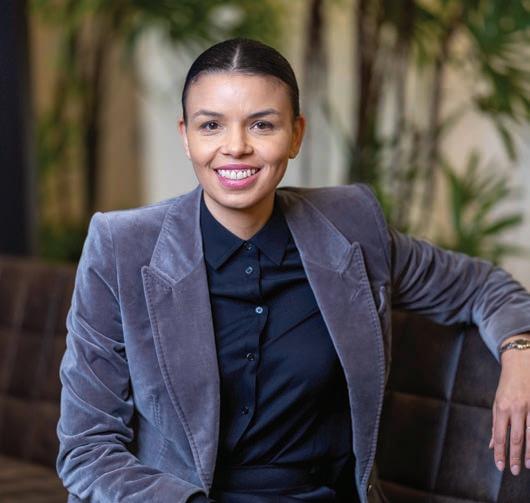
Big business influencing the government and vice versa is nothing new. Earlier in this administration, for example, many businesses ended their diversity efforts to prevent Trump and other MAGA leaders from targeting them. What makes Nexstar’s reaction in some ways even more troubling is their disregard for the democratic principle of free speech while on the cusp of becoming the country’s largest broadcast TV company and controlling most of its TV airwaves. Big corruption plus big media could spell the end of democracy as we know it. Jimmy Kimmel may have his job back, but calling attention to the risks that remain should continue to bring people out to the streets.
Morgan Harper is the Director of Policy & Advocacy at the American Economic Liberties Project, a nonpartisan organization fighting corporation concentration. She also is the Executive Director of the local grassroots organization Columbus Stand Up!
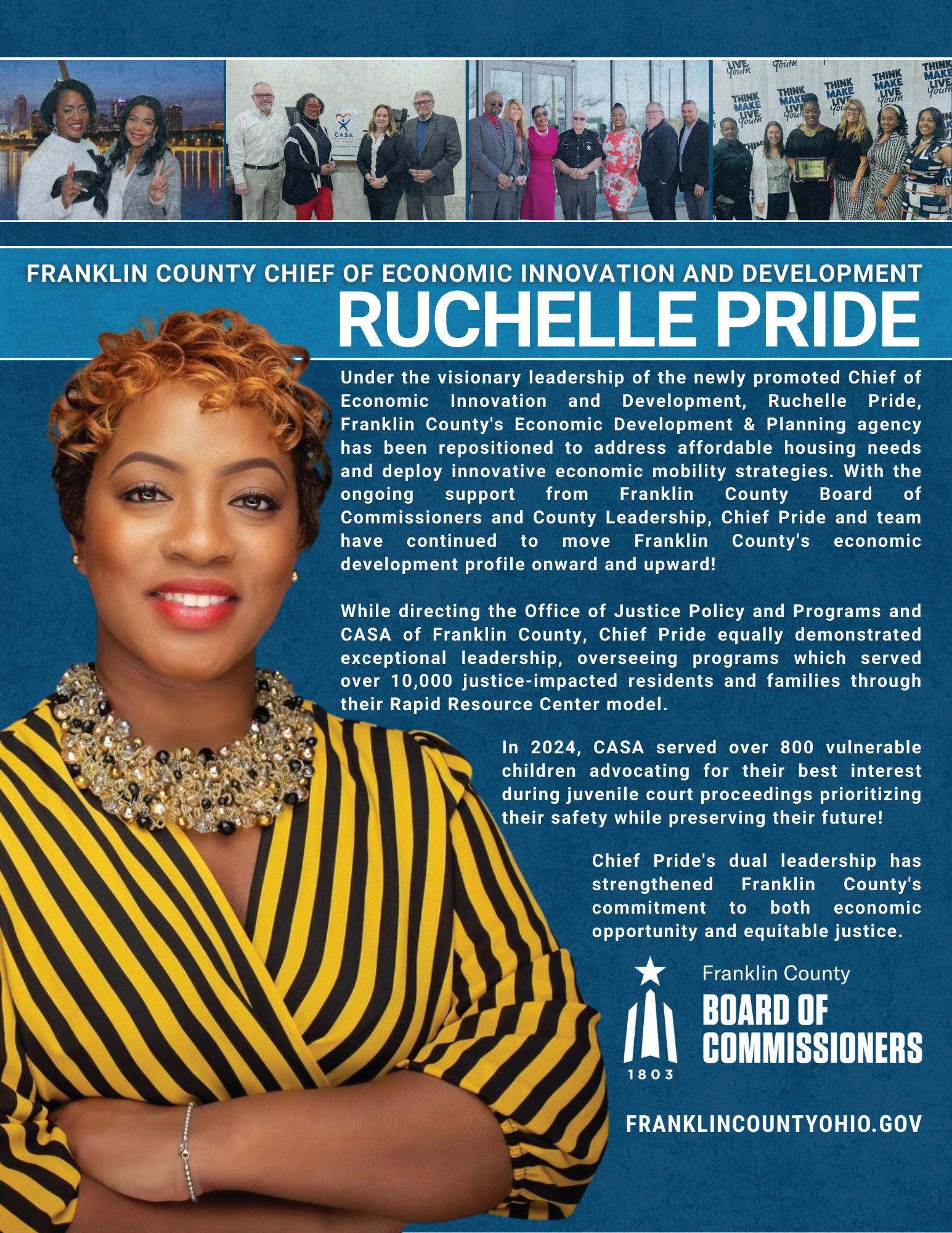
By Christopher Brown, M.D. MPH, FACP, FASN, President & Founder of PressureMD®️
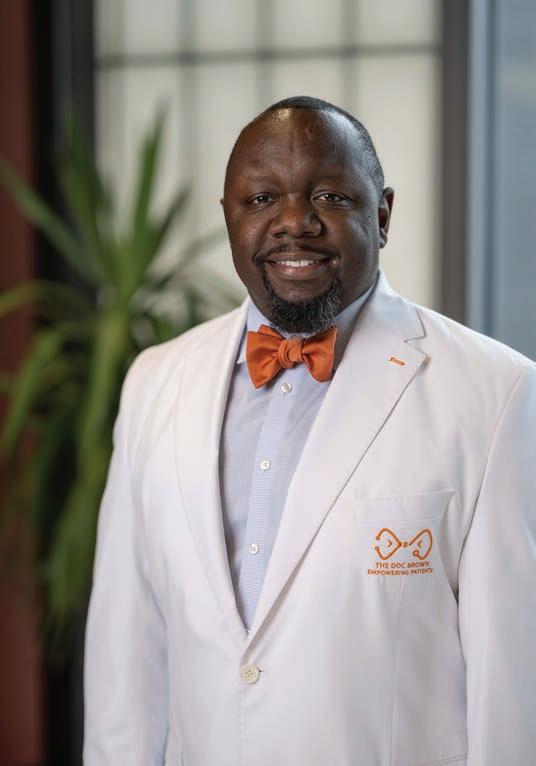
Understanding
Breast Cancer
Breast cancer is a disease in which cells in the breast grow out of control, most commonly forming in the milk ducts (Invasive Ductal Carcinoma) or the milk-producing lobules (Invasive Lobular Carcinoma) The disease is categorized into stages (0 through IV), with lower stages indicating localized cancer and Stage IV meaning the cancer has spread (metastasized) to other parts of the body.
The disease’s impact is significant, particularly within communities of color. While Black women have a
slightly lower incidence rate of breast cancer than White women overall, they face a 38% higher breast cancer mortality rate . They are also more often diagnosed with aggressive subtypes, like Triple-Negative Breast Cancer (TNBC) , and at later stages, which contributes to this disparity.
Screening and Diagnosis: Your Best Defense
1. Self-Exams: Perform monthly breast selfexams to become familiar with the normal look and feel of your breasts. Look for changes such as lumps, swelling, skin irritation or dimpling,
October is Breast Cancer Awareness Month, a critical time to focus on education and action against a disease that profoundly impacts our communities.
nipple pain or retraction, or a discharge other than breast milk.
2. Clinical Breast Exams (CBE): A doctor or nurse performs this physical exam, typically recommended every 1-3 years for women aged 25-39, and annually for women 40 and older.
3. Mammograms: This is the most effective screening tool. For women at average risk, most major guidelines recommend starting annual mammograms at age 40. Women with a strong family history or other risk factors should discuss starting screenings earlier, often by age 30, with a healthcare provider. Diagnosis may follow up with ultrasounds, MRIs, or a biopsy.
Your family history is a crucial factor in assessing your risk. Discuss any relatives who have had breast cancer with your doctor to determine if you need earlier or additional screenings, such as a breast MRI.
Treatment for breast cancer is highly individualized based on the cancer’s type, stage, and the patient’s overall health. Options often include a combination of:
• Surgery (e.g., lumpectomy or mastectomy)
• Radiation Therapy (uses high-energy rays to kill cancer cells)
• Chemotherapy (drugs to destroy cancer cells)
• Hormone Therapy or Targeted Therapy (medications that block cancer-promoting hormones or target specific cancer cell features).
To the leaders and strong women of central Ohio: Early detection saves lives! Don’t wait—use this month as your motivation to take charge of your breast health. If you are 40 or older, schedule your annual mammogram today. If you have concerns, talk to your primary care provider.
Central Ohio Resources
1. Ohio Department of Health Breast & Cervical Cancer Project (BCCP): Offers no-cost breast and cervical cancer screenings and diagnostic testing to qualified uninsured/underinsured participants. Call 1-844430-BCCP (2227).
2. OhioHealth CancerCall: Provides information and guidance on screenings and cancer specialists. Call 1-800-752-9119.
3. Cancer Support
Community Central Ohio: Offers professional programs of emotional support, education, and hope for people impacted by cancer. Find them online or call (614) 884HOPE (4673).
www.pressuremd.com
Disclaimer: The information provided is for educational purposes only and is not intended as a substitute for professional medical advice, diagnosis, or treatment.
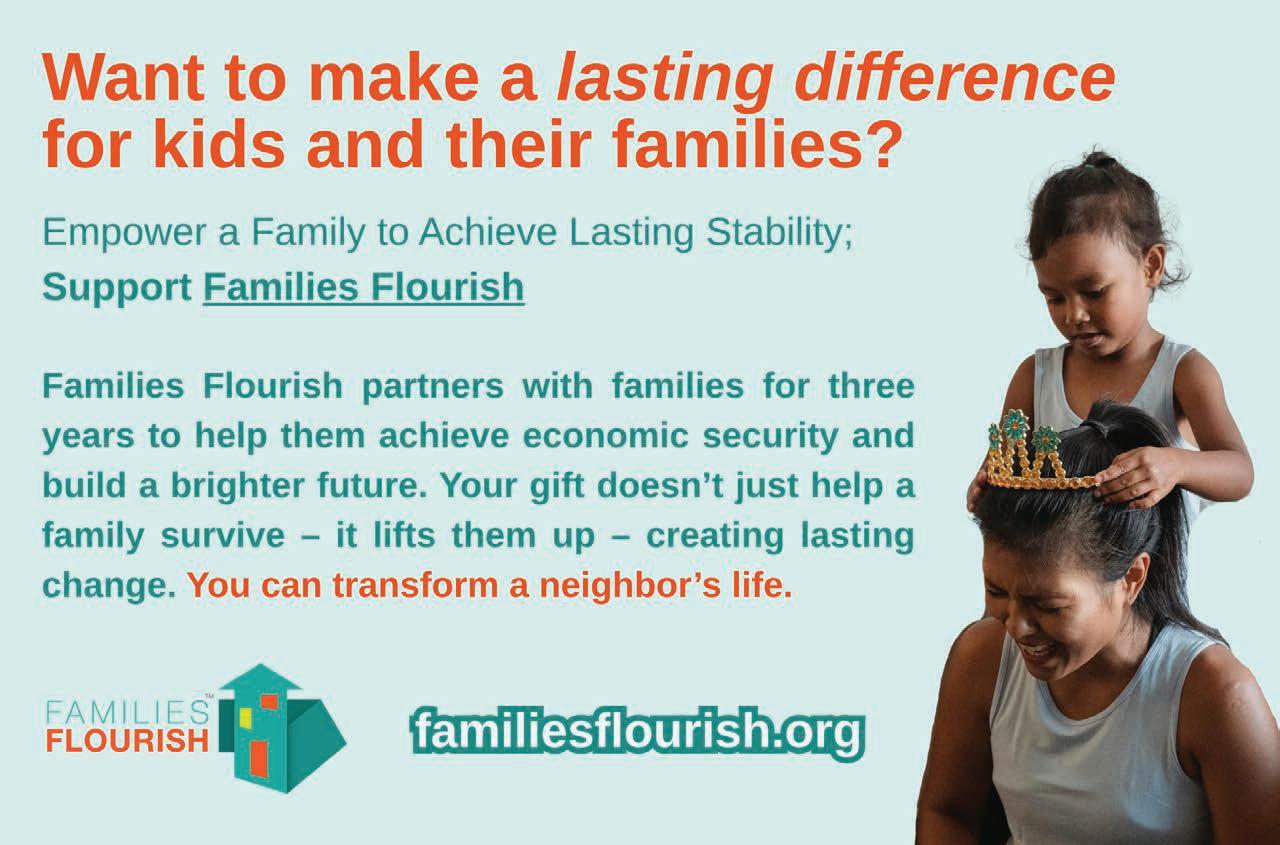



Our 3rd Annual Salute to the Class of 2025

The first time a student from our program takes control of an airplane, something shifts. Their eyes widen. Their voice, trembling with excitement, says, “I can’t believe I’m flying.” In that moment, the impossible becomes possible.
The Urban Aviators Society was founded to create moments like this. We understand that for many young people, especially those from underserved and underrepresented communities, careers in aviation and STEAM aren’t on their radar. Not because they lack talent, but because they’ve never been shown what’s possible.
We change that. Through our Aviation Futures program, students take discovery flights with certified instructors, tour air traffic control towers, and see the
By SGT. Nicholas Williams Founder Urban Aviators Society
inner workings of aircraft maintenance hangars. Our Wings of Tomorrow initiative goes further, breaking down financial and logistical barriers to help aspiring pilots earn their wings. With AeroSTEAM, we bring science, technology, engineering, art, and math to life through aviation-based projects that inspire curiosity and creativity. Droneworks gives youth the skills and certifications they need to launch careers in the fastgrowing drone industry.
But our work isn’t just about airplanes, it’s about opening doors. Every pilot, engineer, and industry professional who mentors our youth proves that their dreams belong in the sky.
We believe talent should determine how far a young person can go, not their zip code. And when they take flight for the first time, we’re not just lifting them off
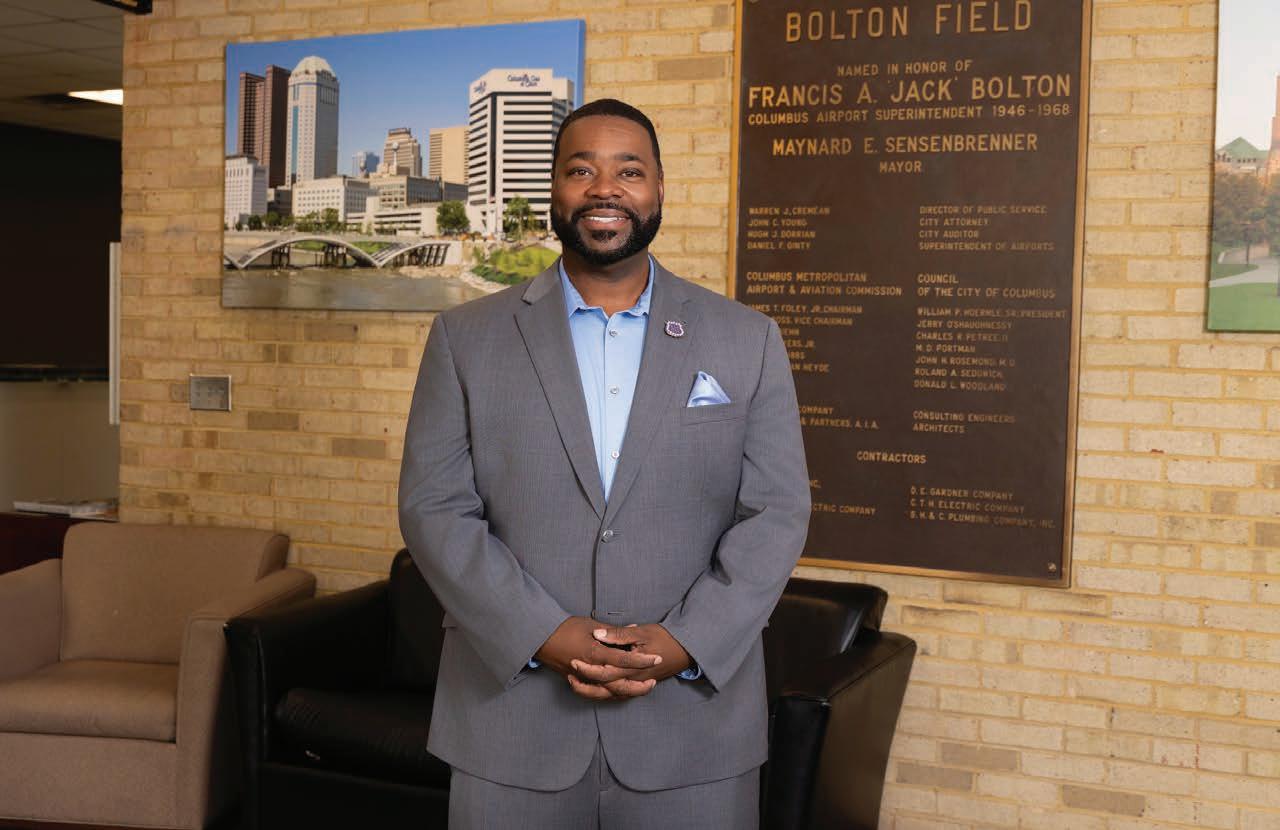
the runway, we’re expanding their vision of what’s possible in their lives.
At the Urban Aviators Society, the sky isn’t the limit. It’s the beginning.
Note: Nicholas Williams is a Franklin County Deputy Sherriff who purchased a plane during the COVID Pandemic and decided to create a nonprofit to expose students to the aviation industry.
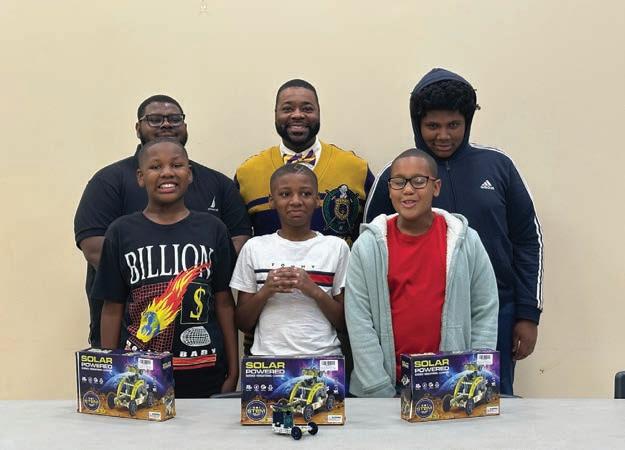
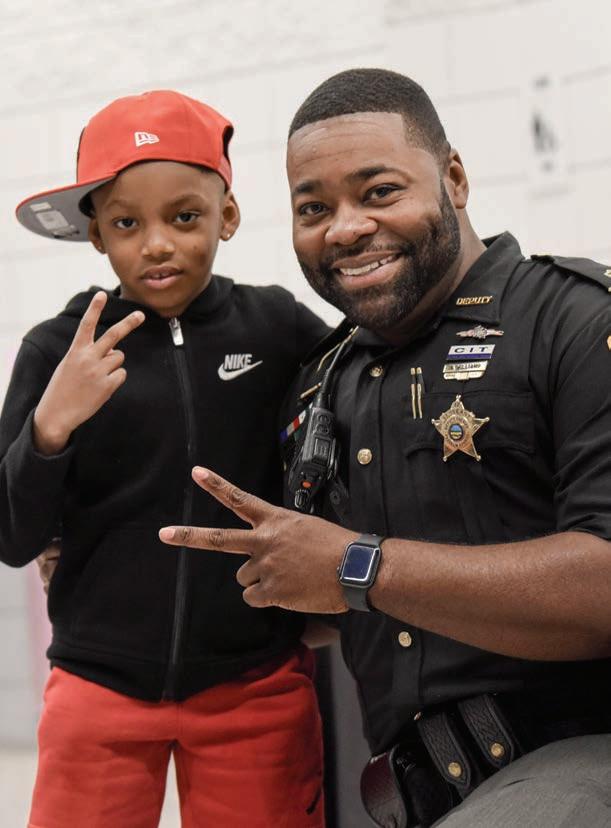
Meet the leaders redefining family opportunity in Central Ohio.
Toni Cunningham and Elizabeth Martinez aren’t just leading two of Columbus’s most respected institutions —they’re leading a movement. As CEOs of the Godman Guild Association (GGA) and Big Brothers Big Sisters of Central Ohio (BBBSCO) they’ve launched a bold partnership that reimagines what it means to create opportunity for families.
“If we want to unlock potential, we can’t just support the child but strengthen the entire family,” says Cunningham. Martinez adds, “When caregivers thrive, children thrive. When families thrive, communities thrive.”
Their vision comes to life at 555 S. Front Street, where BBBSCO and GGA are co-locating in the Brewery District to create a shared headquarters model. More than a new space, this hub offers youth mentorship, adult workforce development, and familystrengthening services, all under one roof. Families access these
supports in a seamless, intentional way, guided by trusted experts.
At the heart of the partnership is the Two-Generation (2Gen) approach, a research-backed strategy that aligns services for children and their caregivers. Studies show that integrated family support drives measurable results: caregivers increase income and employment, children excel academically and socially, and households achieve long-term stability. By streamlining resources and coordination, the model also builds efficiencies that strengthen outcomes and maximize impact. This is a model built not just for today, but for generational impact.
“The collaboration between BBBSCO and GGA isn’t about doing more but about doing it better, together,” Cunningham explains. “We’re building a platform where families move through services as a team, supported every step of the way. We’re combining decades of experience to create a framework

PHOTOGRAPHY
PURPLE STAR PHOTOGRAPHY
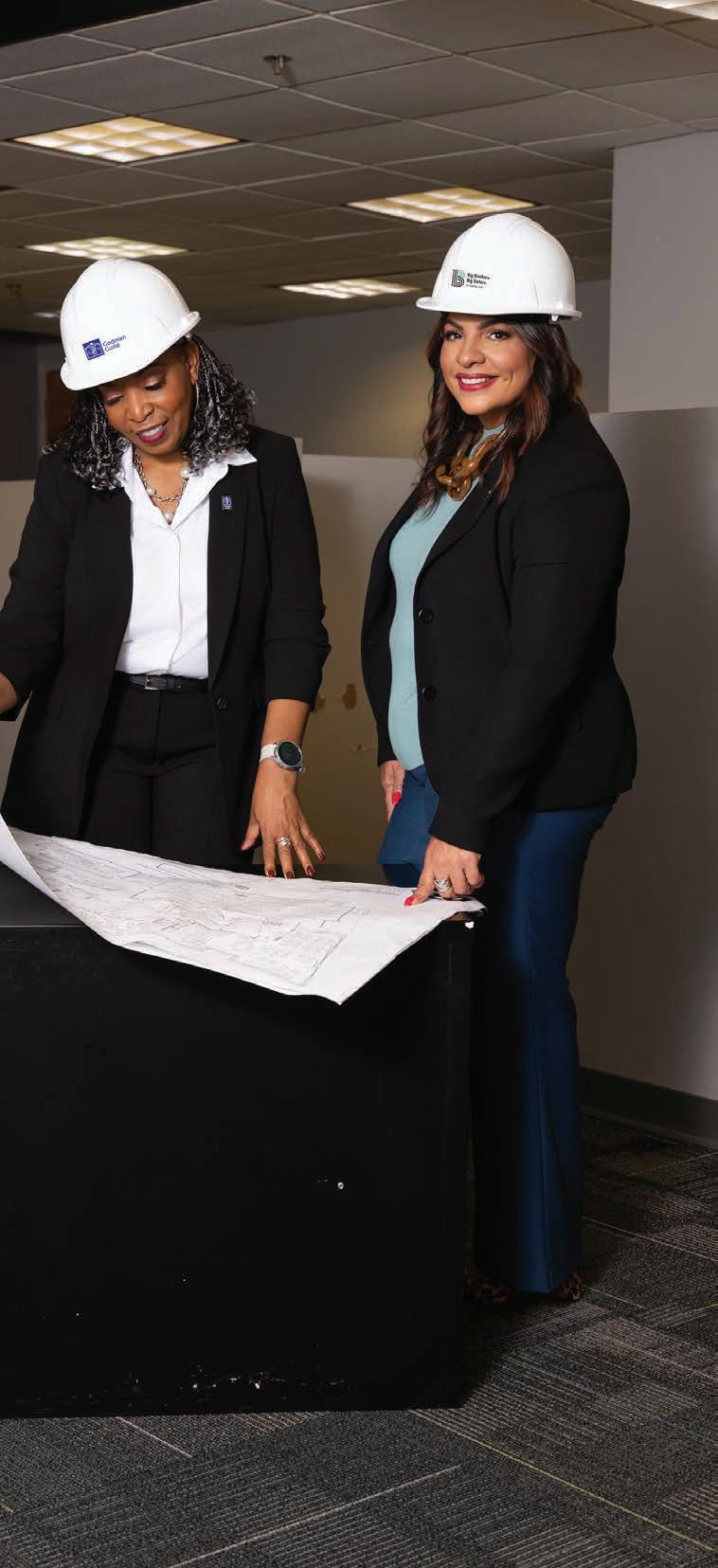
families can navigate with confidence and dignity.”
The partnership takes a hyperlocal, place-based approach, targeting highneed Columbus neighborhoods where economic disparities are greatest. Mentorship programs for youth, high school equivalency and workforce development and readiness for adults, and shared family experiences all work together to strengthen households and break cycles of poverty.
Beyond families, the collaboration is a model of efficiency: shared space, aligned services, and collaborative funding maximize impact. Peerreviewed research confirms that 2Gen programs can improve caregiver income by up to 43%, boost child academic outcomes by 68%, and deliver a 3.2x return on investment. These results ripple through communities for generations.
Cunningham and Martinez’s leadership is the engine behind this innovation. Their shared vision, bold thinking, and commitment to families set a new standard for collaboration in Central Ohio.
“If we invest in families—fully, respectfully, and holistically—we don’t just change lives. We change futures,” says Martinez.
Through this partnership, BBBSCO and GGA are proving that when families rise together, communities rise together, and that powerful, intentional partnerships can transform generations.
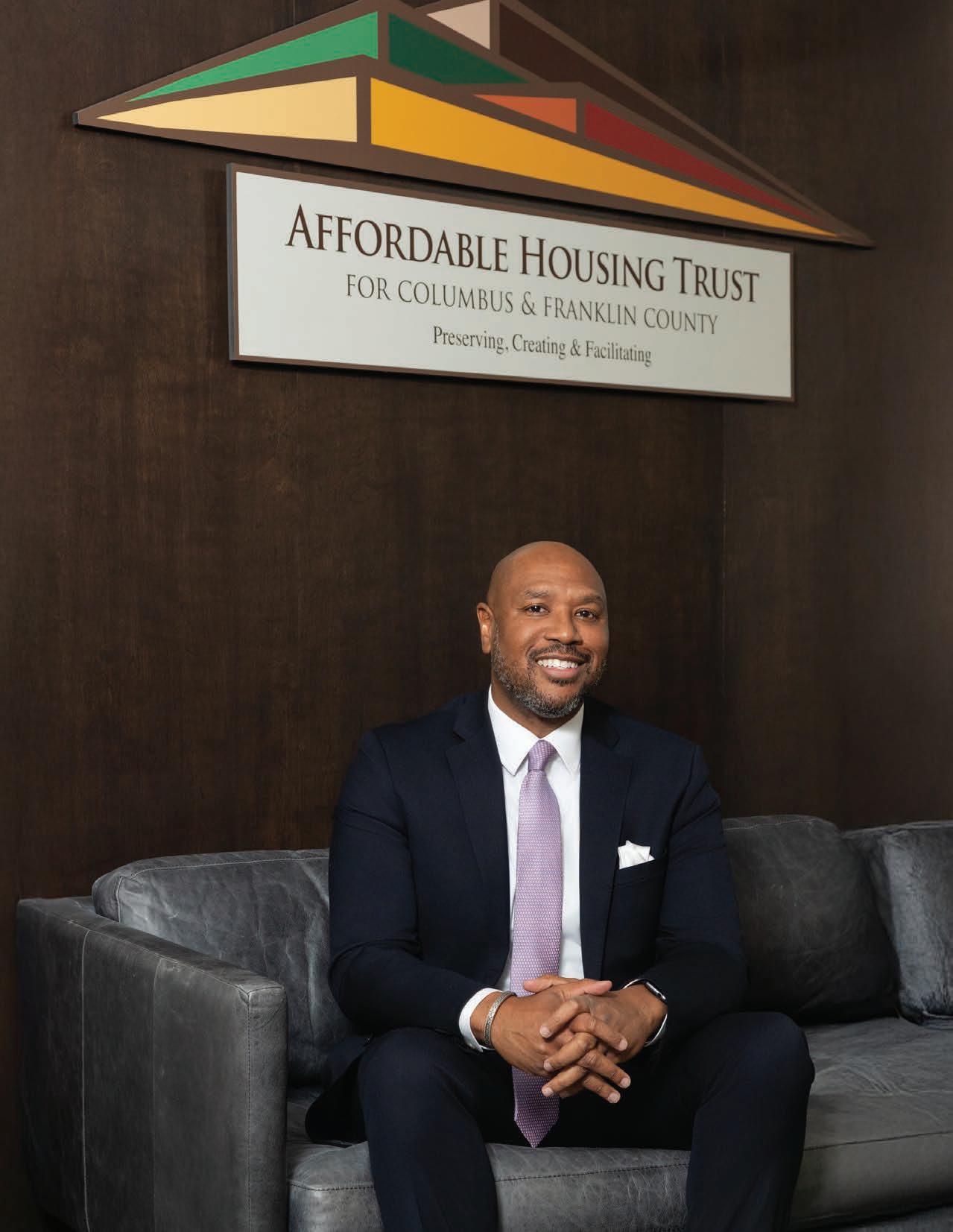
PHOTOGRAPHY BY PURPLE STAR PHOTOGRAPHY

As a legal and finance professional, Ian is passionate about creating economic opportunities that work for everyone by championing affordable housing development that ensures all community members have access to safe, quality homes where they can thrive and prosper.
As President & CEO of the Affordable Housing Trust for Columbus & Franklin County, Ian brings a unique perspective shaped by years of bridging finance, law, real estate development, and government affairs to improve housing affordability outcomes in the Columbus region. His approach is rooted in the fundamental principle that when we take on our neighbors’ challenges as our own through collective work and shared responsibility, we can find equitable
Program and building his foundation in finance and people management.
After earning his law degree, Ian practiced at private firms in Atlanta, GA and Columbus, OH, developing expertise in real estate transactions. He then served as Assistant General Counsel at Nationwide Realty Investors, providing in-house legal guidance while honing his collaborative approach to complex deals.
Ian’s years at Kaufman Development afforded him the experience and perspective of a real estate developer, where he evolved from Director of Finance to Director of Business Development & Strategy, while also serving as in-house counsel. This multifaceted role gave him an inside view of how complex real estate projects come together. As part of the leadership
solutions to the most significant problems.
Ian’s commitment to community extends beyond his professional role. He currently serves as Board Chair of the United Schools charter school network and as a board member of the Greater Columbus Arts Council. His past board service includes the Community Shelter Board and Resident Resources Network. This dedication to organizations addressing education, homelessness, and community development stems from his conviction that thriving communities require strong foundations in housing, education, and opportunity for all residents.
Ian’s path to community development leadership has been shaped by diverse experiences. He began his career as a financial analyst at JPMorgan Chase and GE Energy, graduating from GE’s Financial Management
team, he developed strategy, managed financing relationships, and closed deals that added housing units, retail and office space, and vibrancy to neighborhoods. Most importantly, he learned that successful development isn’t just about numbers—it’s about understanding what communities need and finding innovative ways to deliver it.
Before joining AHT, Ian served as Of Counsel in Ice Miller’s Government Affairs and Regulatory Law practice, working at the intersection of government affairs and economic development to navigate relationships between businesses, government entities, and developers.
Ian is a proud Morehouse man and Michigan Wolverine, earning his Bachelor of Arts in Finance, cum laude, from Morehouse College, and his Juris Doctor from the University of Michigan Law School.
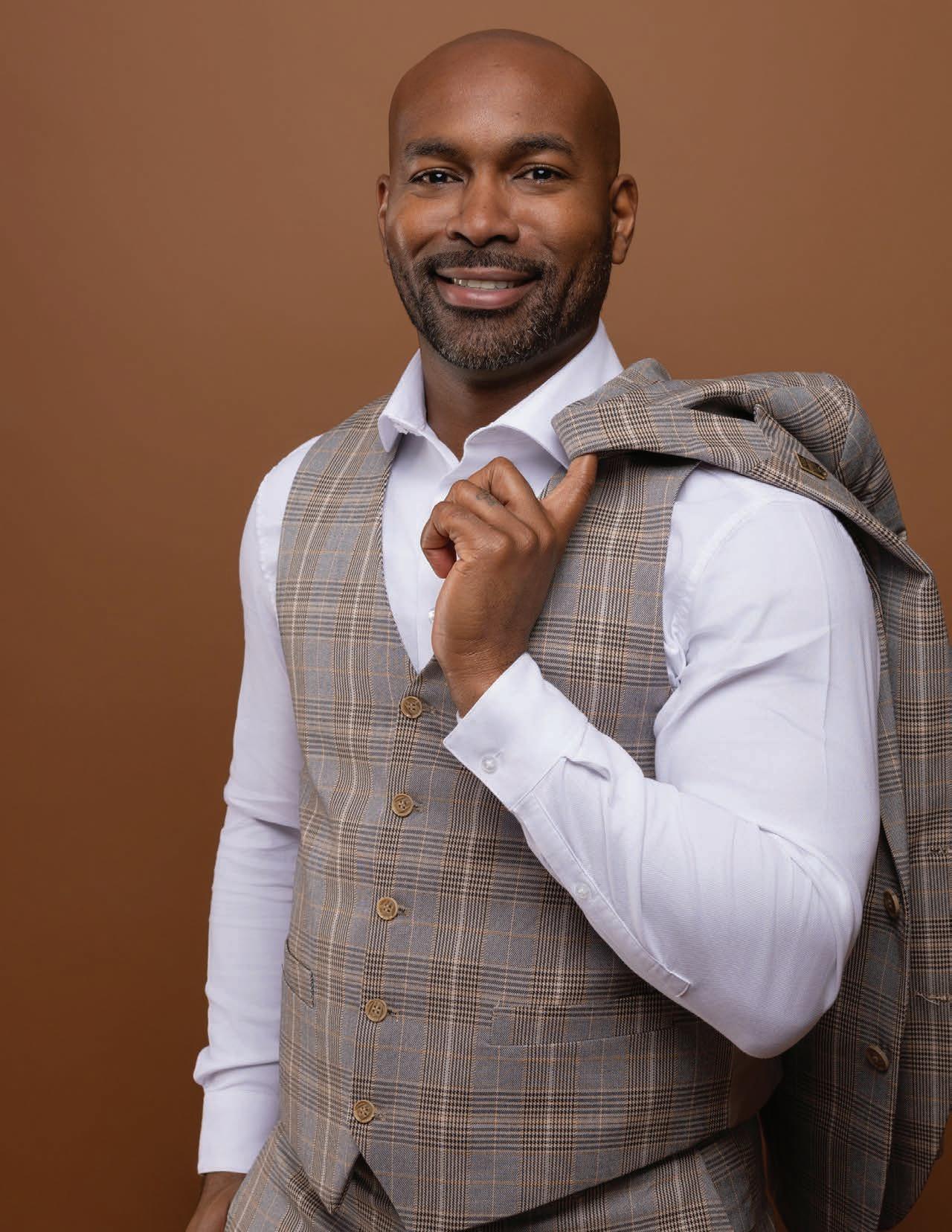
PHOTOGRAPHY BY PURPLE STAR PHOTOGRAPHY

When it comes to shaping brighter futures for young people in Columbus, few names carry as much weight as Karim Jackson. A passionate community builder and trusted voice in education and philanthropy, Karim has dedicated his career to creating opportunities that empower youth to thrive.
As Senior Program Officer for My Brother’s Keeper (MBK) Columbus, Karim leads bold, citywide initiatives that tackle systemic barriers and open doors to success. From boosting early education outcomes to ensuring high school graduation and preparing students for the workforce, his leadership has positioned MBK Columbus as a driving force for
next generation. Through scholarships, mentoring, and leadership development, he has awarded nearly $10,000 in scholarships to local students pursuing HBCUs while uplifting organizations and events that share his vision for equity and access.
Karim’s service to the community is woven into every part of his life. For the past decade, he has coached boys basketball at his alma mater, Walnut Ridge High School, using the game as a platform to teach discipline, teamwork, and resilience. He is also an active life-member of Alpha Phi Alpha Fraternity, Inc., continuing a tradition of servant leadership and community advocacy.
His impact has earned him recognition
My Brother’s Keeper (MBK) Columbus
equity and opportunity.
Karim’s impact stretches far beyond his current role. At I Know I Can, he championed college and career readiness, built transformative partnerships, and redefined donor engagement with innovative strategies. One of his proudest achievements came when he secured the largest one-time gift in the history of the Founders Scholarship Program, giving Columbus City Schools students the opportunity to attend the HBCU of their choice debt-free.
Never content to stop at professional milestones, Karim’s personal mission shines through the Jackson Youth Empowerment Foundation and the Jackson Sports & Leadership Academy, both founded to inspire and equip the
across the city, including the Outstanding Community Partner Award, the Next Up Columbus Award, the Columbus is My Neighborhood Recognition, and the Father and Son Duo Award.
A proud graduate of Wilberforce University (B.S., Business Management) and Wright State University (M.Ed., Student Affairs in Higher Education), Karim is equally proud of his role at home as a husband and father of three.
Guided by the belief that collective action and intentional investment in youth can transform communities, Karim Jackson continues to be a tireless advocate for change, equity, and opportunity.

PHOTOGRAPHY
PURPLE STAR PHOTOGRAPHY

Betty Dye has a three-step formula for success in human resource management that has propelled her career as an executive with the Columbus Metropolitan Housing Authority (CMHA).
1. Be kind and respectful to others.
2. Treat everybody with dignity and care.
3. Lead with empathy and understanding.
That’s the advice she’s shared with colleagues over a 30-year-plus tenure at CMHA and with the hundreds of women Dye has mentored over the past two decades through community service and faith-based volunteerism.
“I’m proud that at CMHA, I’ve been able to cultivate a culture of wellness – physically, mentally, and emotionally – that didn’t previously exist when I began my career,” says
As CPO, Betty provides strategic guidance to CMHA’s board of directors, executive leadership, and staff on a wide spectrum of human capital matters. She oversees recruitment, retention, workforce planning, and employee engagement, while fostering a culture that prioritizes wellness, self-care, equity, and professional growth. Her collaborative leadership style ensures that CMHA continues to attract and nurture a diverse workforce that reflects the communities it serves.
Betty is known for championing employee well-being, spearheading initiatives that address emotional, physical, financial, and career health. From educational lunch-and-learn sessions to cultural celebrations and recognition programs, she has shaped a workplace environment that values both individual achievement and collective belonging. These efforts have strengthened CMHA’s ability to support
“At the same time, I’m equally proud that I’ve been fortunate in my professional and private life to have helped many women find success at home raising families, grow at their workplace with rewarding careers, and embrace enlightenment in their place of worship. I’m truly blessed.”
Dye’s accomplishments at CMHA are defined by dedication, people-centered leadership, and a deep commitment to community well-being.
Beginning her journey as a clerk, Betty steadily advanced through roles including administrative assistant, Director of Human Resources, and then Vice President, before assuming her current role as Chief People Officer (CPO). This progression reflects her expertise as well as her unwavering belief in the power of cultivating talent and creating an inclusive workplace.
employees holistically, resulting in a more resilient and engaged organization.
Her emphasis on growth and continuous learning has helped build a CMHA workforce that is adaptable, innovative, and missiondriven.
Beyond CMHA, Betty is an advocate for community partnerships that enhance opportunity and inclusion. By connecting CMHA’s workforce initiatives with broader community resources, she reinforces the organization’s dual commitment to serving both its employees and the residents who depend on its housing programs.
“I believe that people are the heart of every successful organization,” Dye says. “I’m committed to ensuring CMHA continues to foster an environment where employees feel supported, valued, and empowered to make a lasting impact on the communities they serve.”
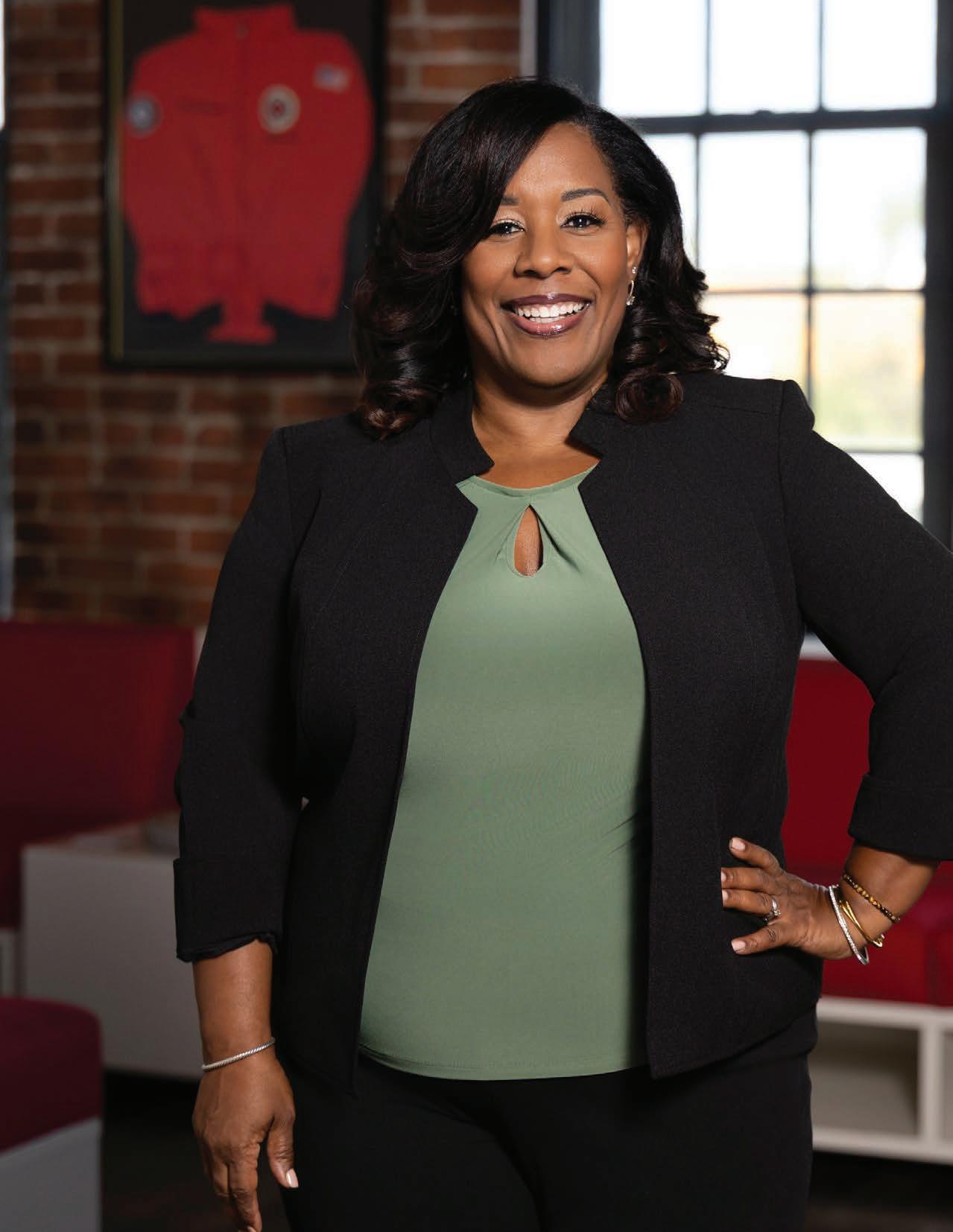
PHOTOGRAPHY BY PURPLE STAR PHOTOGRAPHY

Ruth has dedicated more than 20 years to advancing education and nonprofit leadership. She began her career in early childhood education, working with programs such as Directions for Youth and Families, Ready, Set, Grow, and the Teen Parent Connection—experiences that deepened her understanding of the inequities and barriers many families face in accessing opportunity.
In 2010, she joined the United Way of Central Ohio as a founding team member of Columbus Kids, the first program of its kind in the nation. The early childhood initiative identified children ages 2.5 to 5 in Columbus City Schools who were at risk of learning delays, serving as a powerful
to Senior Director of Site Stakeholder Engagement on City Year’s national team, where she provided coaching, training, pipeline management, and fundraising strategy across 29 sites nationwide while strengthening corporate partnerships and donor engagement programs. Today, she serves as Executive Director and Senior Vice President of City Year Columbus, leading the site toward sustainable impact for students across the community.
Beyond her professional work, RuthMarie is a committed civic leader. She is a graduate of the African American Leadership Academy (Cohort 14), the Fundraising Leadership Academy, and an inaugural member of the Columbus Chamber of Commerce’s Elevate CBus
predictor of academic readiness. Under Ruth-Marie’s leadership as Community Engagement Director, the program expanded to reach all Columbus and Southwest City Schools.
She later transitioned to United Way’s Resource Development Department as Senior Relationship Manager in Key Club, managing a $1M+ annual portfolio. In that role, she cultivated philanthropic support from the African American community and deepened donor engagement around the mission to Fight Poverty.
Ruth-Marie then joined City Year, where she served as Managing Director of Development for City Year Columbus, successfully securing the site’s $1.3M private revenue budget to advance educational equity. She was later promoted
leadership cohort. Her community involvement includes serving as a founding member of the Wexner Shumate African American Council at the Wexner Center for the Arts, a member of the Friends of the Drexel Board, the Columbus School for Girls Parent Association, and the African American Community Fund Committee with the Foundation of Appalachian Ohio.
She lives in Columbus’ Easton area with her husband, Dr. Mark Lomax II, and their two daughters, Amirah Joy and Lailah Grace.
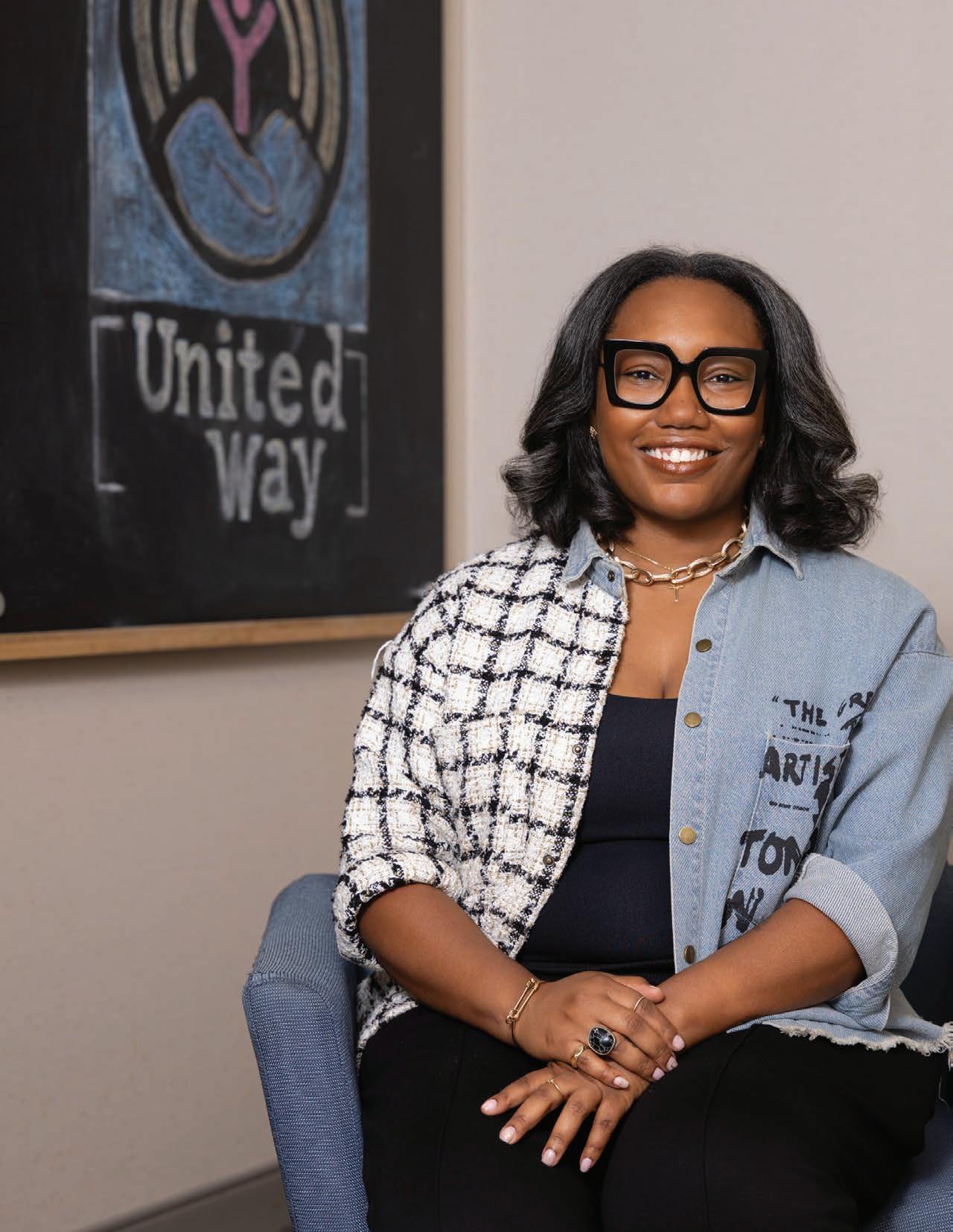
PHOTOGRAPHY BY PURPLE STAR PHOTOGRAPHY

Kourtni Hatton’s professional journey is defined by her commitment to equity, inclusion and transformative leadership. As United Way of Central Ohio’s vice president and chief people & equity officer, Hatton leads PDPL, a nonprofit board development initiative launched in 1989 to expand representation for leaders of color and the LGBTQ+ community.
Hatton views her leadership role and PDPL’s purpose as catalysts for systemic change throughout central Ohio, emphasizing the critical importance of equity and authentic representation within board service.
Her leadership is rooted in integrity, transparency, authenticity and creating access to opportunity. These values extend to her work within the broader community, where she strives to create inclusive environments by ensuring accountability to equitable policies and practices.
approaches and priorities by modeling inclusive practices and advocating for policies that champion access and transparency.
“My efforts demonstrate that when leadership reflects the diversity of the community, decisionmaking becomes more informed, effective and responsive to real needs,” she says.
According to Hatton, PDPL faces unique challenges, including the need for resources and capacity to support a growing number of leaders ready to serve and strengthen nonprofit boards.
She encourages the community to support PDPL’s growth by sharing program information, helping to identify and encourage potential board leaders from diverse backgrounds, and providing financial or in-kind resources to enhance programming.
“Continued collaboration with local organizations and advocacy for inclusive board
“Throughout my career, I’ve sought opportunities to challenge norms and barriers, champion voices that too often go unheard, and foster environments where individuals are empowered to thrive,” she explains.
Central to Hatton’s impact is her leadership of PDPL. Initially created as two separate initiatives—Project Diversity and Pride Leadership—the programs merged in 2018 and have produced over 800 graduates, empowering underrepresented voices to serve and lead central Ohio nonprofits. PDPL equips leaders with essential skills and experiences through leadership workshops, nonprofit education, service projects and mentorship. The program plays a critical role in ensuring nonprofit boards reflect central Ohio’s diversity, fostering a new generation of visionary leaders and elevating voices that may otherwise remain unheard. Through PDPL, Hatton inspires other organizations and leaders to reassess their own
practices will help PDPL fulfill its mission and extend its reach, ensuring more voices have access to shape the region’s nonprofit sector,” she emphasizes.
Looking ahead, Hatton envisions PDPL deepening its commitment to advancing board diversity by increasing opportunities that connect participants and alumni with nonprofits seeking new board members.
“We’ll prioritize outreach to underrepresented communities, ensuring that our efforts elevate voices and perspectives that have historically been overlooked,” she says. “Ultimately, I envision a future where central Ohio’s nonprofit boards mirror our community’s rich diversity, and every voice is embraced as essential to shaping impactful, equitable results.”

PHOTOGRAPHY BY PURPLE STAR PHOTOGRAPHY

Katrina Geyer is a dedicated advocate and community collaborator with over 20 years of experience serving underserved populations. Her passion for helping others is rooted in a deep commitment to teaching financial literacy and promoting advocacy, ensuring that individuals have access to the resources, guidance, and encouragement they need to succeed. Katrina believes that everyone deserves autonomy and the opportunity to improve their lives, their families, and their communities.
Throughout her career, she has worked
their unique challenges, and support them toward achieving financial independence and stability. Her expertise as a Certified Financial Counselor further enhances her ability to deliver impactful guidance tailored to individual needs.
When she’s not working in the community or collaborating with partners, Katrina indulges in her hobbies and personal growth pursuits. She is an avid reader and audio book enthusiast, aiming to read or listen to at least 100 books each year. Her interests also include baking, cooking, singing, and playing the piano. Active and energetic, she enjoys playing on a beach
closely with diverse populations, empowering community members to take thoughtful, informed steps toward bettering their circumstances. Her approach emphasizes education and relationship-building, recognizing that trust and understanding are vital to meaningful progress. Whether collaborating with corporate partners or nonprofit organizations, Katrina strives to foster strong, productive relationships that can drive positive change within the Columbus community.
Katrina’s extensive exposure to various sectors and her time working directly with at-risk populations have honed her ability to connect with people, understand
volleyball team, tennis, and staying fit at the gym.
Katrina’s overarching goal is to uplift and strengthen her community through education, partnership, and compassion. She believes that by working together— and fostering relationships rooted in trust and shared purpose—positive change can be achieved for individuals and the broader Columbus area. Her lifelong dedication to service, combined with her diverse skill set and passionate advocacy, continues to make a meaningful impact every day.
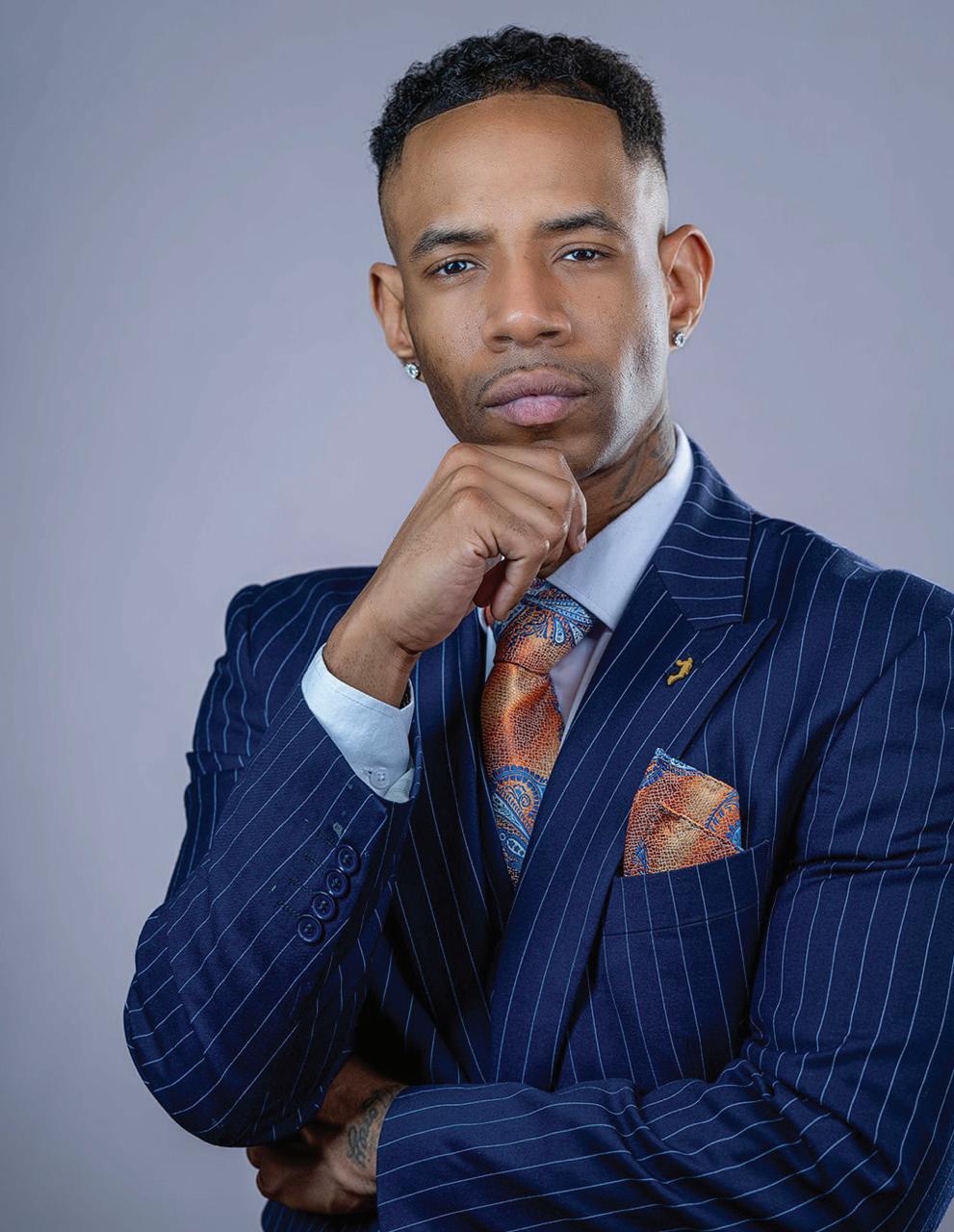

Apowerful new collaboration is taking shape in Franklin County as Think Make Live Youth (TMLY) and the Franklin County Juvenile Court unite to support justice-involved youth through empowerment group sessions and one-on-one mentoring. This innovative partnership, led by Terry Green, Founder & CEO of Think Make Live Youth, and Judge Lasheyl Stroud, Lead Juvenile Judge at Franklin County Juvenile Court, represents a shared commitment to breaking cycles of incarceration and creating pathways to success.
At the heart of this initiative are Credible Messengers who are trained mentors with lived experience that work directly with young
leadership training, and restorative practices rooted in social justice and wellness. Each young person is paired with a Credible Messenger who offers consistent guidance and accountability, helping them navigate personal challenges while connecting them to education, employment, and community opportunities.
Judge Stroud emphasized the importance of community collaboration in rehabilitation. “The juvenile courts cannot do this work alone. By partnering with organizations like Think Make Live Youth, we’re creating a holistic approach to justice that uplifts rather than punishes.”
The goal is clear: to ensure these young people do not return to the justice system. Instead, they
men and women both inside the Franklin County Juvenile Intervention Center and in the community. Through weekly group sessions and one-on-one mentoring, they help young people build confidence, develop life skills, and access critical community resources.
“Our mission is to provide opportunities for young people by inspiring action,” said Green. “Through this partnership, we’re ensuring that justice-involved youth are not forgotten but they are guided, supported, and empowered to rewrite their stories.”
The programming emphasizes empowerment, equity, and belonging, which are in alignment with the values of Think Make Live Youth. Participants engage in life-skill development,
are equipped to lead with purpose, make positive choices, and contribute to their communities.
This partnership builds on Think Make Live Youth’s proven record of impact, with initiatives like the Unleashing Potential (UP) Program and Guns D.O.W.N. Program which has already helped hundreds of youth transition successfully into stable, productive lives.
As the partnership grows, it embodies the vision that has guided Think Make Live Youth since its founding “Greatness Realized. Leaders Developed. Stories Changed.”
For more information, visit www. ThinkMakeLiveYouth.org.
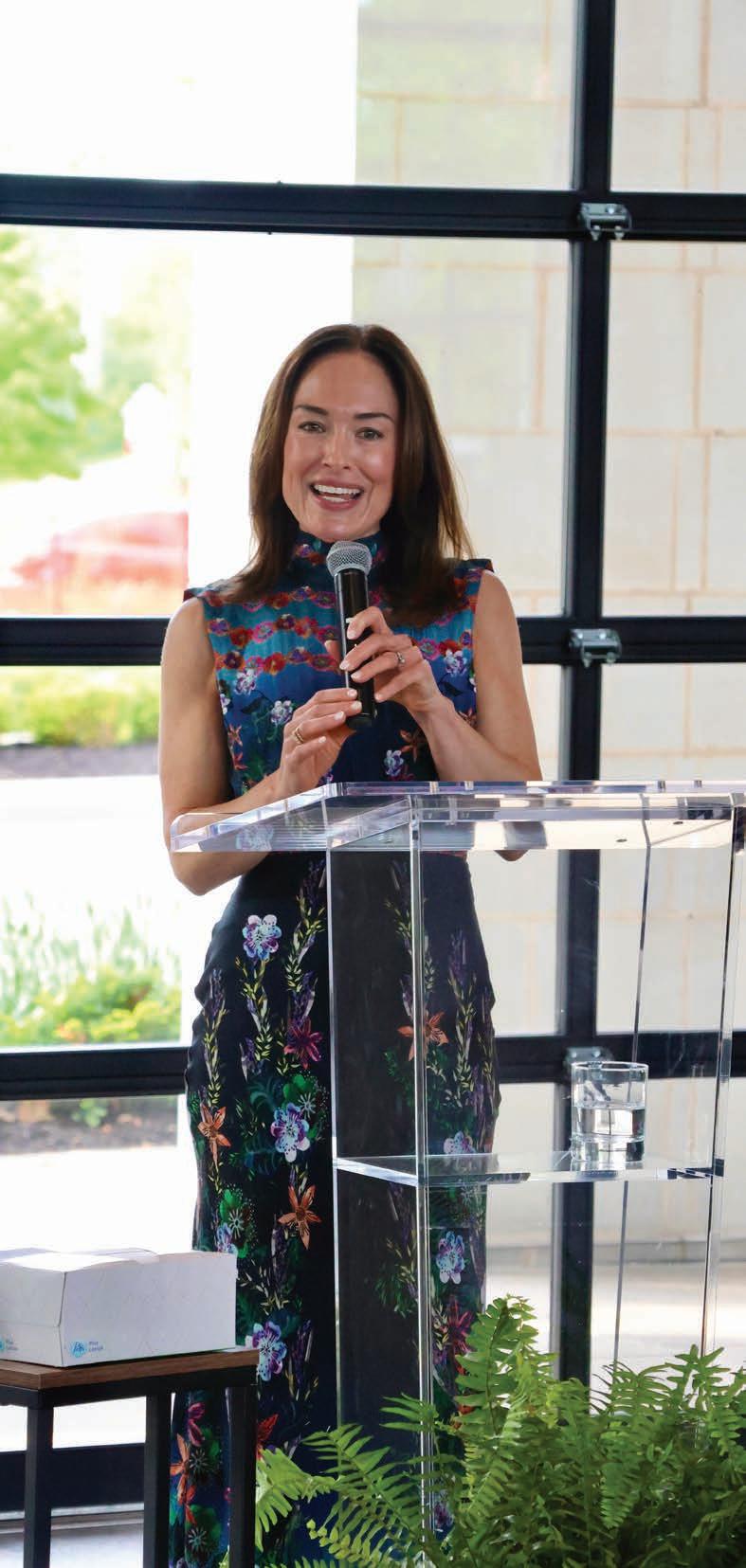
In Central Ohio, an invisible crisis touches the lives of more than 10,000 teens and young adults each year. Homelessness robs youth of stability, belonging and the chance to thrive. For many, each day is defined by uncertainty and survival. Star House exists to change that by offering a place where open doors become the first step in rewriting a life story.
Star House is the only drop-in center in Central Ohio serving youth ages 14–24. More than 1,700 young people walk through our doors in a year seeking immediate support: safety, meals, showers, clean clothing, and hygiene essentials. What they find, however, is far more. They find adults who listen, believe in them and honor their worth. In a world that often overlooks them, youth discover here that they are seen, valued, and capable of more than they ever imagined.
Beyond meeting urgent needs, Star House equips young people to step confidently into their futures. Licensed therapists provide trauma-informed mental health care, helping youth process past experiences and build resilience. Our transitional employment program offers paid work experience, giving participants the skills and confidence to pursue long-term opportunities. At Carol Stewart Village, youth gain
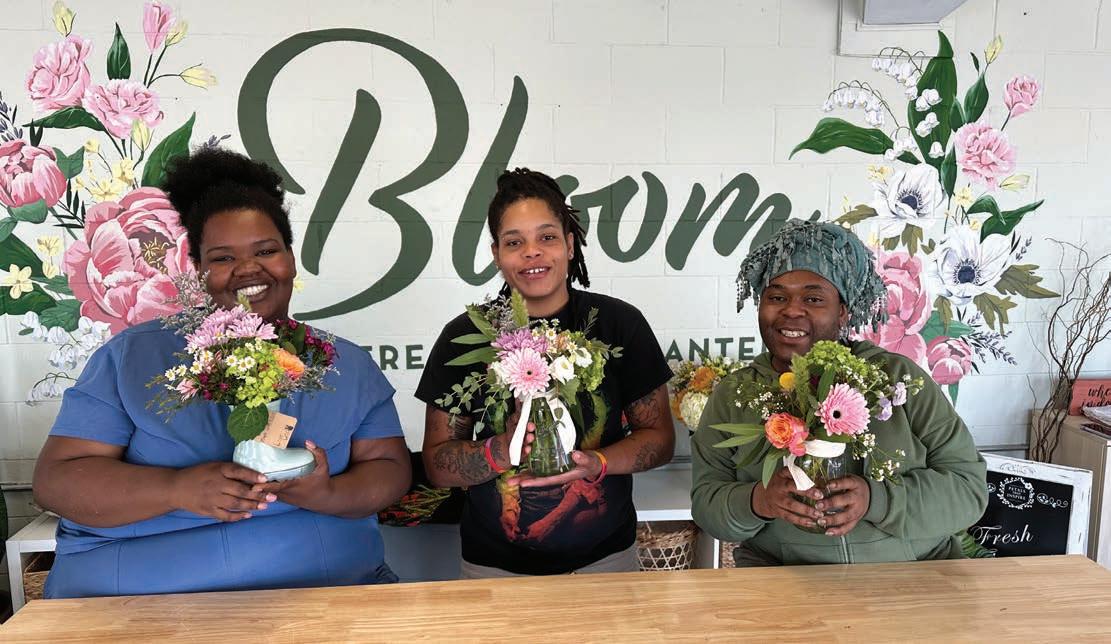
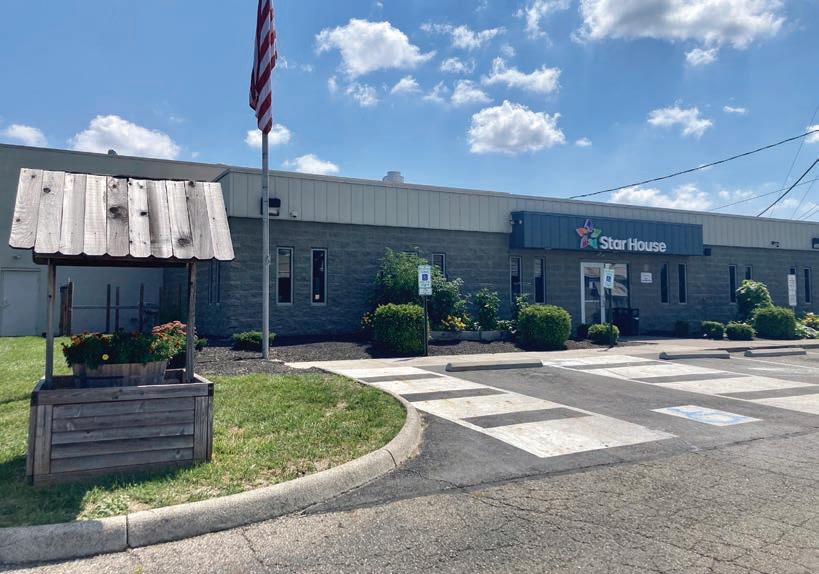
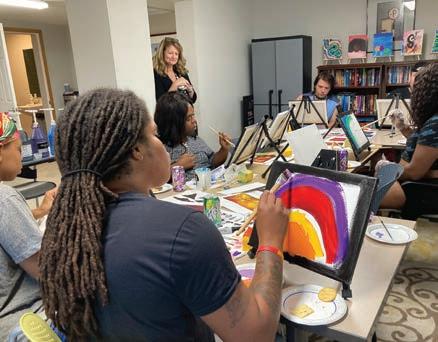
stable, affordable housing within a community committed to their growth and success.
The impact is real and transformative
One young woman moved into Carol Stewart Village and, with ongoing mentorship, is pursuing
a medical career and building a stable future. Another young person, once struggling with trauma and uncertainty, has found steady support through our mental health services and drop-in center, taking steps toward independence and hope. These stories show how consistent care and opportunity can turn uncertainty into stability and potential into achievement.
Star House’s mission is bold: to end youth homelessness in Central Ohio. But bold visions require bold action. Your support does more than provide essentials—it builds belonging, opportunity and the foundations for a brighter future.
Visit www.starhouse.us to volunteer, donate, or get involved. Every contribution ensures that every young person who walks through Star House’s doors finds not just care, but a path forward, a place to grow, and a life filled with possibility.
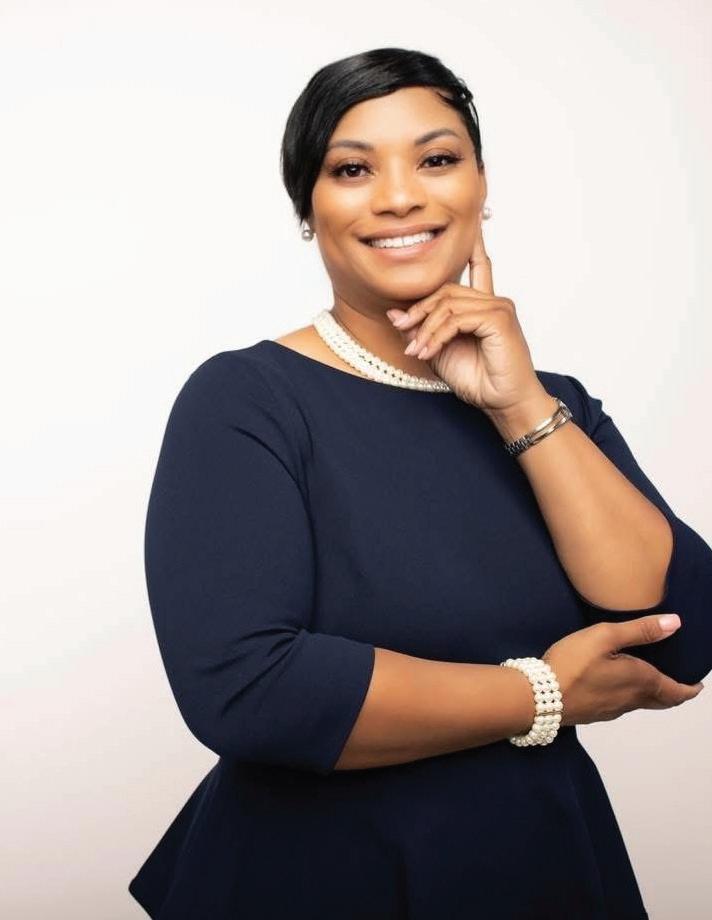

Mentoring youth has been an unwavering cornerstone in DeVeonne’s lifelong commitment to service. Guided by her deep faith and trust in a higher power, she has devoted her career to empowering individuals and strengthening communities. One of her most celebrated achievements is the revitalization of neighborhoods throughout Central Ohio, where she has provided essential resources in housing, education, and health reform. For the past eight years, DeVeonne has also led community-wide HIV and STD screenings during National HIV Awareness Day, exemplifying her dedication to public health and wellness.
DeVeonne currently serves as the Co-Founder and Chief Operating Officer of Legacy
She earned her Bachelor of Science in Early Childhood Education, graduating cum laude from the esteemed HBCU Central State University, and later obtained her Master of Business Administration from the University of Phoenix.
DeVeonne began her professional journey at age 11, working alongside her father, John Gregory, CEO and Founder of the National Center for Urban Solutions in Columbus, Ohio.
Today, she serves as Board President of the Licking County NAACP and Orange Hearts for
Makenzi, a nonprofit founded in memory of 17-year-old Makenzi Ridley, who was tragically murdered in June 2021.
Academy of Excellence Academies, whose mission is to make every child’s potential a reality by engaging and empowering families and communities to advocate for all children.
At Legacy Academy of Excellence, she has been dedicated to serving schoolage students—particularly those who are economically disadvantaged or at risk— within communities facing some of the highest educational disparities and economic challenges.
Under her leadership, Legacy Academy of Excellence has narrowed the educational gap by improving math and reading scores schoolwide by more than 63%, provided housing support for families, and helped reduce community crime rates through the delivery of behavioral and mental health services to students.
Additionally, DeVeonne is a Lead Organizer for the National African American Male Wellness Agency, where she collaborates with national coordinators dedicated to advancing health, leadership, and opportunities for Black men through targeted wellness programs, community partnerships, and advocacy. She remains actively involved in numerous other community-based organizations that align with her mission of empowerment and equity.
Outside of her professional and community endeavors, DeVeonne finds joy in spending quality time with her husband and family.
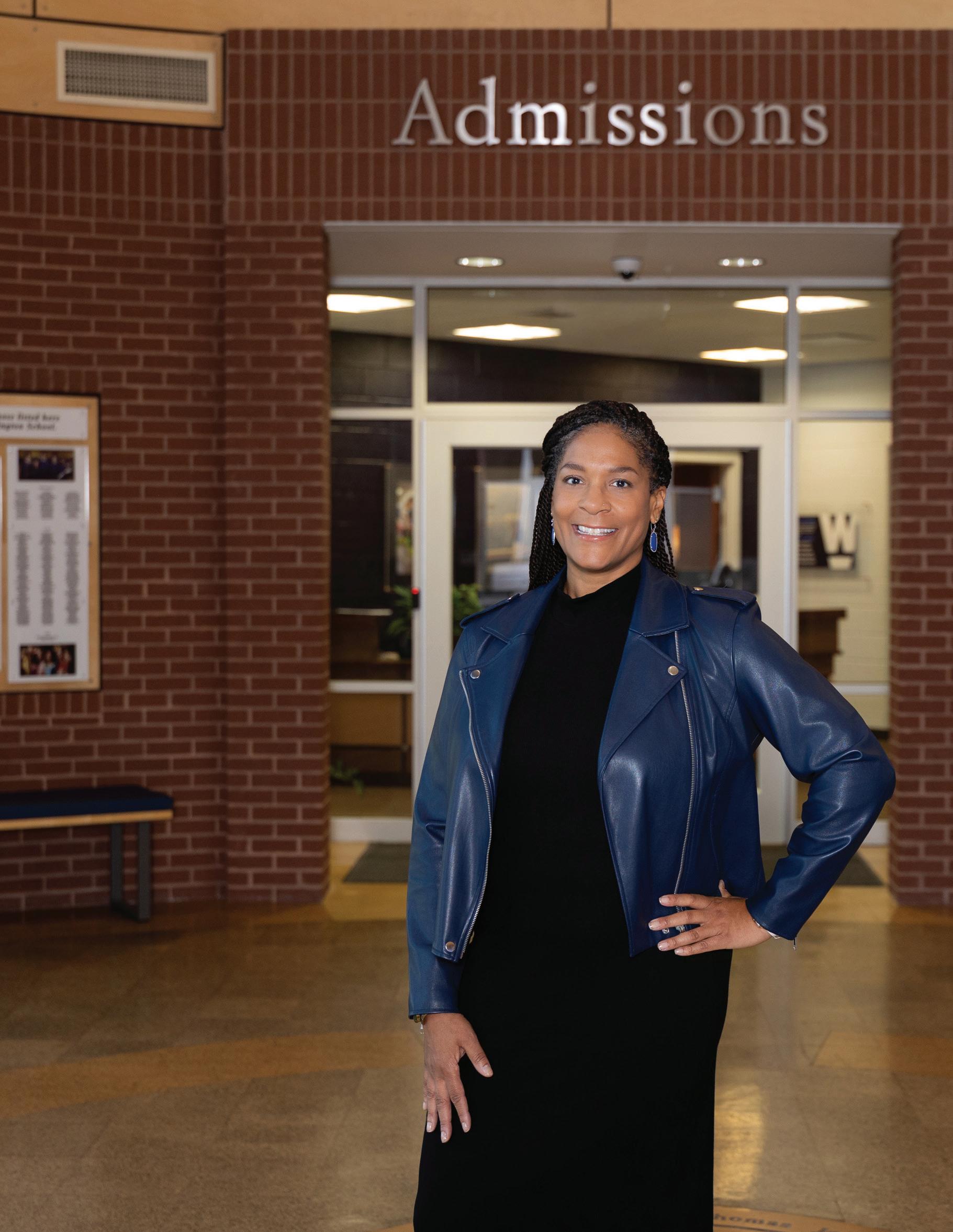
PHOTOGRAPHY BY PURPLE STAR PHOTOGRAPHY

For Dara Jackson, admissions is more than an entry point into a school—it is the beginning of a lifelong relationship. As Director of Admissions at The Wellington School, Jackson has built a reputation as a connector, a communicator, and a leader who ensures families feel seen, supported, and inspired as they consider one of the most important decisions they will ever make: where to invest in their child’s education.
Her path to admissions leadership is rooted in storytelling. A graduate of Howard University with a degree in English and a minor in journalism, Jackson worked in public relations and
Since stepping into the director role in 2021, Jackson has guided Wellington through a period of record growth. Under her leadership, the school has enrolled the largest student body in its history for the 2025–26 academic year. To Jackson, this milestone is about more than numbers; it reflects Wellington’s ability to provide a dynamic, values-driven education that resonates with families across Columbus.
In a city defined by innovation and leadership, Jackson stands out as a professional whose impact extends beyond admissions. She is shaping not only the growth of one of Columbus’s premier independent schools but also empowering young women of color as
sales before moving into education. She holds a master’s degree in marketing and communication from Franklin University and, along with her team, has completed the CAEP© certificate program through the Association of Independent School Admission Professionals (AISAP) in partnership with Vanderbilt Peabody College, the first and only certification of its kind in the admissions field.
She spent more than eight years at St. Joseph Montessori School, where she led admissions and external affairs, strengthening the school’s profile in the region. In 2018, she brought her vision and expertise to Wellington, rising from assistant director to leading the admissions office in just a few years.
co-advisor of Female Students of Color, where thoughtful programming builds confidence, fosters leadership, and provides community.
Beyond her work at Wellington, Jackson embodies the curiosity she champions in students. She is an avid traveler, concert goer, and explorer of new restaurants, always seeking fresh perspectives and connections.
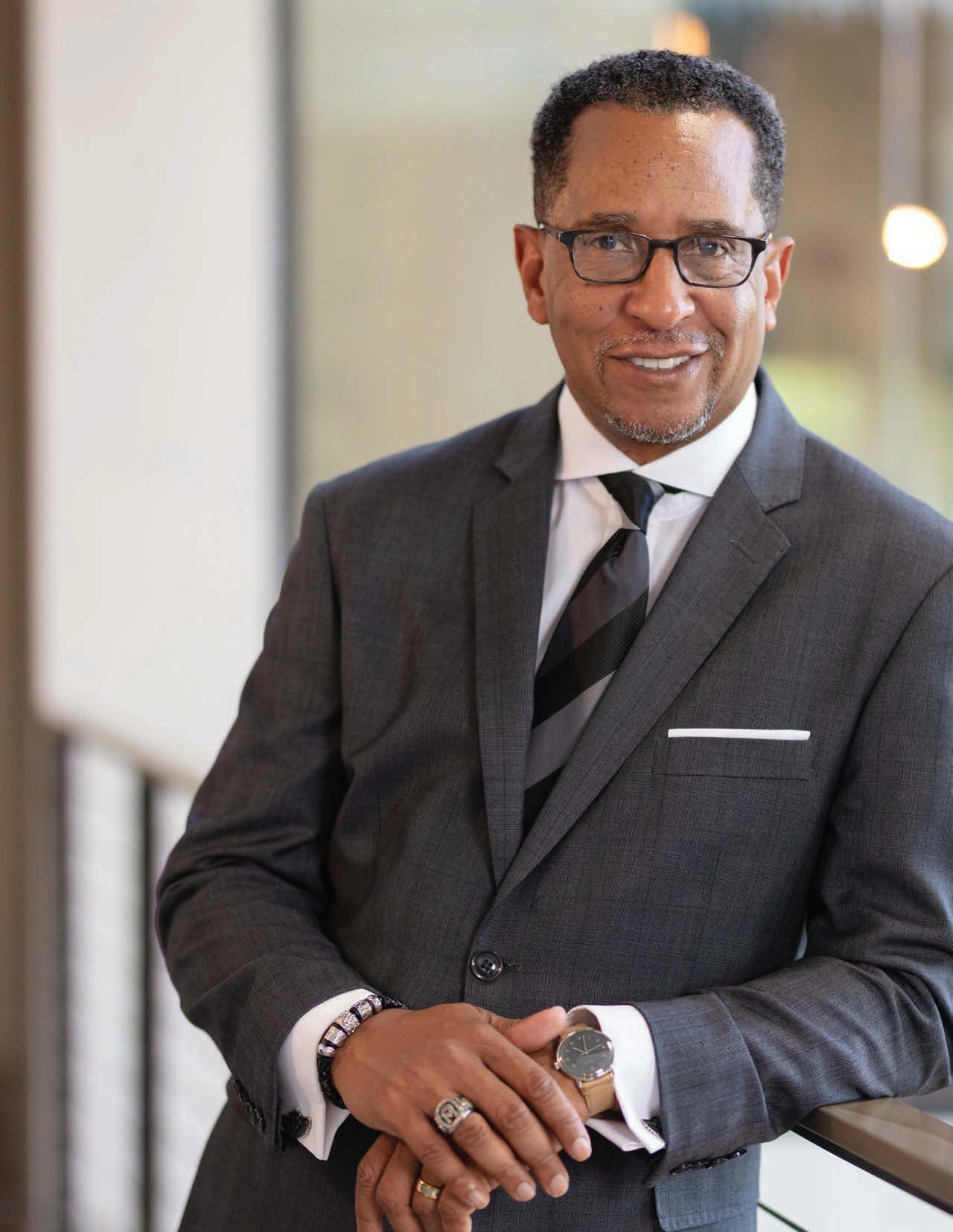
PHOTOGRAPHY
PURPLE STAR PHOTOGRAPHY

Adam K. Troy is a missiondriven leader, strategist, and convener whose work sits at the intersection of faith, community, and development. With more than two decades of experience in ministry, nonprofit leadership, and community engagement, Adam has built a reputation for turning vision into impact, guiding organizations and institutions to align their resources with the needs and aspirations of the communities they serve.
A proud graduate of Morehouse College, Adam carries forward the legacy of excellence, service, and leadership instilled in him during his formative years at the nation’s premier institution for educating African American men. His education at
faith-based land repurposing for affordable housing and mixed-use development.
Known for his ability to bring diverse stakeholders together, Adam has cultivated impactful partnerships with city officials, developers, funders, and grassroots leaders alike. His approach combines strategic vision with a deep sensitivity to community voice, ensuring that development is both transformative and inclusive.
In addition to his organizational leadership, Adam is a sought-after speaker, facilitator, and advisor. He has contributed to local and national conversations on topics ranging from equitable development and leadership cultivation to the unique role of faithbased institutions in addressing systemic challenges.
Morehouse laid the foundation for his lifelong commitment to justice, equity, and empowerment, values that are deeply woven into his professional journey.
Currently, Adam serves as the Director of Missions and Community Engagement at New Salem Baptist Church in Columbus, Ohio, where he works to connect faith with action by advancing initiatives that strengthen families, uplift neighborhoods, and build sustainable pathways for prosperity. He also plays a key leadership role with the Community of Caring Development Foundation (CCDF), where he leads strategies that position the organization as a trusted convener and developer within the Linden community and beyond. Under his guidance, CCDF has pioneered innovative models around food as medicine, leadership academies, and
Grounded in faith and inspired by a vision of thriving, interconnected communities, Adam continues to dedicate his life to building bridges—between people, sectors, and opportunities. Whether working in boardrooms, sanctuaries, or neighborhood streets, his passion is to empower others to see themselves as leaders and catalysts for change.
Adam K. Troy is more than a leader—he is a builder of futures, carrying forward the Morehouse tradition of “culture, character, and service” into every endeavor he undertakes.
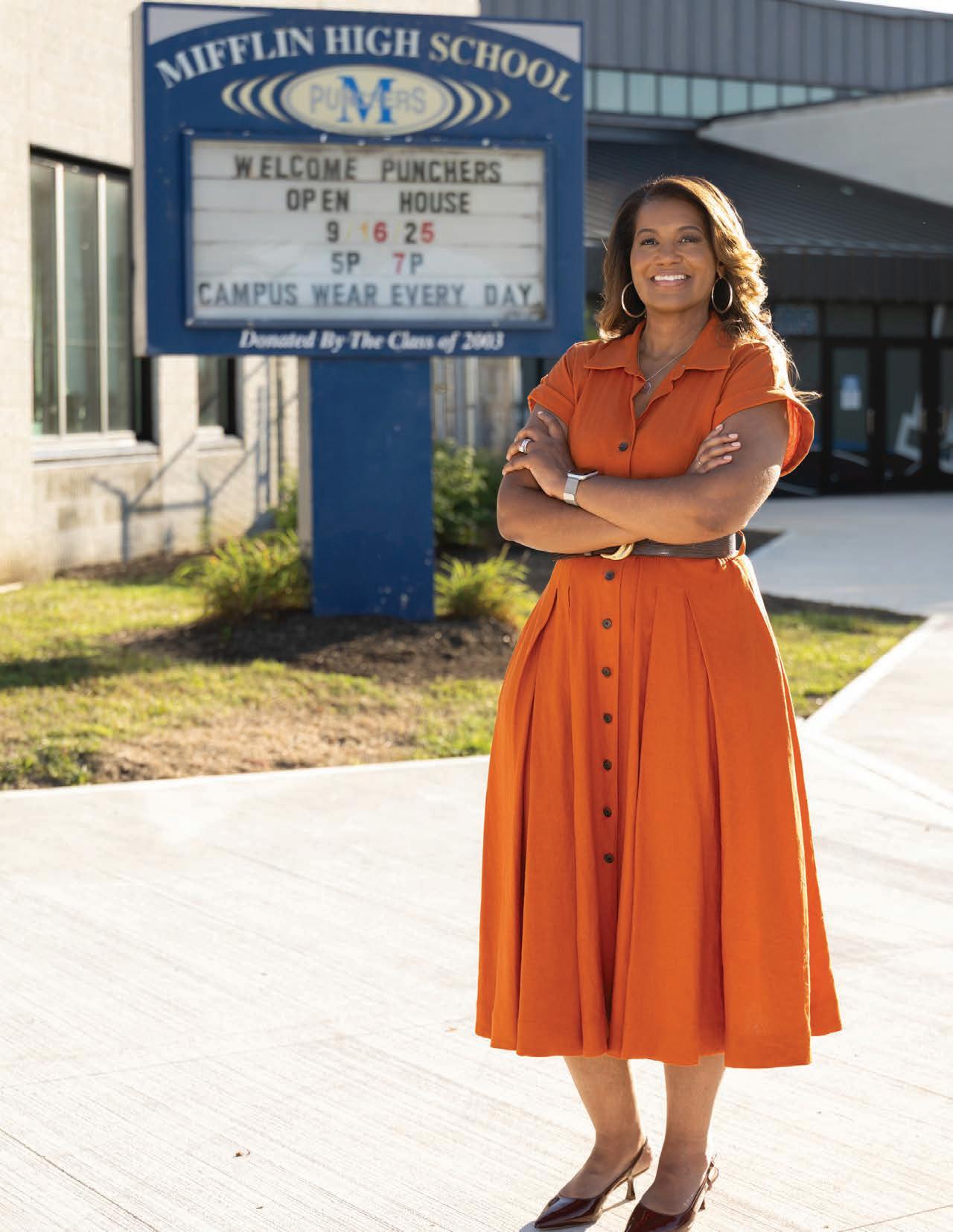
PHOTOGRAPHY BY PURPLE STAR PHOTOGRAPHY

Dr. Yolanda M. Stewart is a Strategist in the Office of Whole Child Supports for Columbus City Schools, where she is part of the districtwide leadership team strengthening attendance, climate, and culture initiatives. With over 25 years in public education, she has served as a middle school educator, district reading coordinator, literacy coach, graduation coach, community linkage coordinator, and high school assistant principal. In her current role, she partners with departments, schools, families, and community organizations to design professional learning, implement district-aligned strategies, and foster inclusive environments where students are empowered to engage fully and have their voices valued.
Dr. Stewart earned her Ph.D. in Educational
access to scholarships, internships, college tours, and professional networks, building a strong pipeline that connects students and families to the legacy and promise of HBCUs. Her advocacy further includes expanding STEM access for girls, building faith-based partnerships, and leading parent engagement workshops that equip families to actively support post-secondary planning.
Dr. Stewart has been widely recognized for her impact in education. Her honors include Columbus City Schools Educator of the Year (2006), the Ohio School Board Association Teacher of the Year (2012), the Columbus Education Association Helen Jenkins Davis Award for Social Justice (2016), the Black Legacies Award from The Ohio State University (2025), HerStory Maker – Columbus
Policy and Leadership from The Ohio State University in 2015, with research that examined the intersections of literacy, identity, and belonging for urban adolescent African American males. Her scholarship highlights how culturally responsive practices and school contexts can positively shape student outcomes and advance equity for traditionally underperforming students.
A proud graduate of Howard University, Dr. Stewart is also a champion of Historically Black Colleges and Universities (HBCUs). She serves as one of the Lead Organizer for the CBUS HBCU Ambassadors Initiative, a countywide, faith-based partnership that provides leadership development, mentoring, and workplace readiness training to current HBCU students, while creating pathways for youth to explore and pursue HBCU opportunities. Through this work, she has expanded
Urban League (2025), the Educator Award from the Central Ohio Club of NANBPW, Inc. (2025), and the Presidential Blue Sapphire Award by the Sigma 614 Foundation (2025).
Deeply engaged in community work, Dr. Stewart serves as President-elect of the Howard University Alumni Club of Columbus and is an active member of The Links, Incorporated and the National Coalition of 100 Black Women.
A proud graduate of Columbus Mifflin High School, Dr. Stewart and her husband of 27 years, Pastor Geoff Stewart, are the parents of five children—all of whom have either graduated from or currently attend HBCUs. Their shared focus is on strengthening communities through education, service, and opportunity.
By: Tammy Dolby CEO/Executive Director

UMADAOP of Franklin County stands as a beacon of hope, resilience, and empowerment in Central Ohio.
Born from the grassroots activism of individuals determined to care for their own community, UMADAOP—short for Urban Minority Alcoholism and Drug Abuse Outreach Program— has become much more than an organization. It is a cornerstone of support, a trusted friend, and a testament to what is possible when people unite for the greater good. Its mission is rooted in serving as a lifeline for those facing addiction, mental health challenges, and the difficulties of reentry, always with prevention at the forefront.
UMADAOP’s foundation is steeped in the rich legacy of community activism. In the tradition of the 1960s—a time when communities, especially communities of color, banded together to demand basic dignity and fair treatment—UMADAOP’s founders answered the call for change. They were neighbors, parents, faith leaders, and advocates who recognized that the strongest solutions come from within. Their activism was not a distant or abstract notion; it was personal, urgent, and deeply rooted in love for their families and neighborhoods.
UMADAOP’s most impactful initiatives have never emerged from comfort. Instead, they have been born from hardship, forged in the challenges that families and individuals face every day. Whether it’s the pain of addiction, the stigma of mental health struggles, or the obstacles to successful reentry after incarceration, UMADAOP’s services are direct answers to real needs. This authenticity ensures that every program is not only relevant but also deeply empathetic, reflecting the lived experiences of those served.
Top Tier Services: Prevention, Mental Health, Reentry, and Addiction Support
UMADAOP’s commitment to excellence is evident in the top-tier services it offers. Its prevention programs empower youth and adults with knowledge and skills to resist substance use before it starts. Mental health support is accessible, compassionate, and tailored to the community’s cultural realities. For those returning from incarceration, UMADAOP’s reentry initiatives open doors to new opportunities, helping individuals rebuild their lives and reconnect with loved ones. In the area of addiction, UMADAOP provides comprehensive outreach, education, and treatment, meeting people wherever they are on their journey to recovery.
Conclusion: Call to Action and Community Pride
UMADAOP of Franklin County is a testament to the transformative power of community-led action. Its story is one of overcoming hardship, honoring the legacy of activism, and building new pathways to wellness and justice. As we reflect on the work that has been done and the challenges that remain, let us stand together with pride—and with renewed commitment—to support UMADAOP’s mission. Whether you are a longtime ally or just learning about this vital organization, there is a place for you in this ongoing journey of empowerment, healing, and hope.


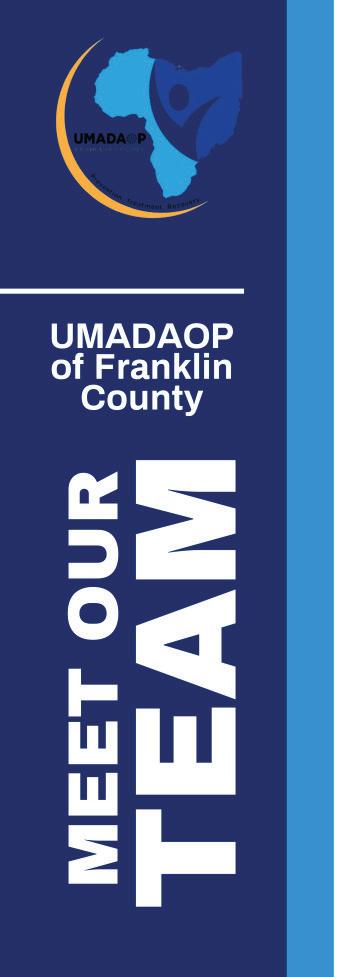

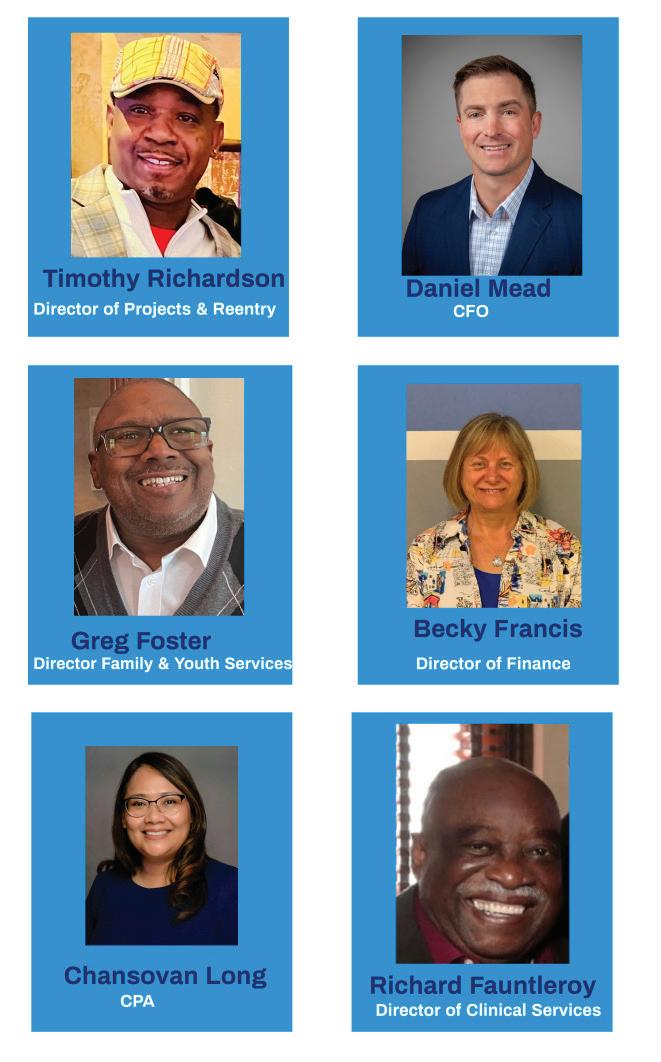

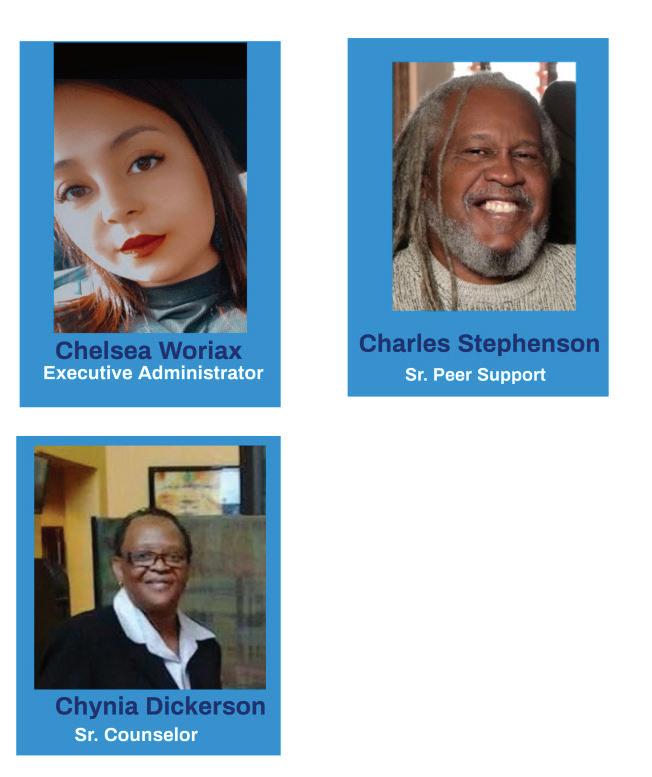
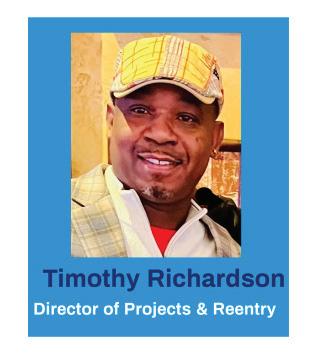

PHOTOGRAPHY BY PURPLE STAR PHOTOGRAPHY

Principal India Wilson exemplifies these qualities as an award-winning educator, innovator, and community leader. She currently serves as Head Principal of STEM Middle at Baldwin Road Junior High School in Reynoldsburg, Ohio— the only State of Ohio STEM-designated middle school in Central Ohio. Under her leadership, Baldwin recently earned its redesignation, reaffirming its place as one of just 12 state-recognized STEM schools in the region.
A passionate advocate for STEM and Health Sciences education in urban schools, India has dedicated her career to closing both the achievement gap and what she calls the “belief gap.” At Eastgate Elementary, she spearheaded the school’s transformation, positioning it as
Representation remains central to India’s leadership. She ensures students regularly see themselves reflected in STEM fields, from culturally responsive book selections to electives such as African American Literature alongside Forensic Science and Video Game Design. Her STEM Career Fairs bring in role models—including Black neurosurgeons, engineers, and scientists—while intentional partnerships with the Black Physicians Network and AEP’s Black Employees Resource Group connect students to authentic professional pathways.
Her influence extends across Ohio. As a member of the Ohio STEM Learning Network Review Team, she collaborates on reviewing and recommending schools for STE(A) M designation. Her leadership has earned
the prototype for Columbus City Schools’ Health Sciences Academies. At Baldwin, she re-energized authentic project-based learning by introducing three STEM lenses: Health Sciences, Environmental Sciences, and Social Justice. She also coined the term STEMmersed to capture a culture of innovation that continues to drive STEMazing student outcomes.
India’s vision goes beyond academics. Staying true to her roots in social work, she has prioritized meeting students’ whole needs. At Eastgate, she created Wash Wednesdays to support families with uniform laundering and partnered with community organizations to establish a food pantry. At Baldwin, she launched The WilHouse, a free school store that provides students with essentials such as clothing, toiletries, and household supplies.
widespread recognition, including the 2023 Excellence in STEM Leadership Award from the Ohio Department of Education, Battelle, and OSLN; the Outstanding Principal and Administrator Award from the Ohio Alliance of Black School Educators; and the Central Ohio Social Justice in Education Award.
Beyond her professional roles, India is active in NABSE, OABSE, ASCD, Alpha Kappa Alpha Sorority, Inc., and Jack and Jill of America, Inc. She also teaches Sunday school at First Church of God. A proud wife, mother, and grandmother, she embraces family life as fully as her professional calling.
Through innovation, intentionality, and unwavering investment in her students and community, Principal India Wilson continues to inspire the next generation of leaders and changemakers.
By Anthony King
This feature was developed from an interview with Dr. Kim M. Campbell, highlighting her journey, leadership philosophy, and enduring impact across education and community spaces.
When most people imagine leadership, they picture someone standing at the front of a room, a commanding presence with a microphone in hand and a crowd leaning in. But some of the most impactful leaders aren’t the ones in the spotlight. They are the quiet architects of change, the ones who lead through action, integrity, and intention, often without applause or recognition.
Dr. Kim M. Campbell embodies this kind of silent strength. Her leadership challenges the idea that influence requires visibility. For her, leadership is not about titles or attention, it’s about consistency, excellence, and empowering others to thrive. “I’ve always noticed that the people who truly get things done are the quiet workers,” she reflects.
Over the course of more than 30 years in education, human resources, and healthcare, Dr. Campbell has mentored and guided hundreds of people; students, educators, and emerging leaders alike. Her approach is rooted in faith, humility, and the belief that nothing happens by accident. Every connection, she says, serves a purpose. “A goal is reached by taking steps that lead to a mile, and miles that lead to a journey, and a journey that spans a lifetime.”
Those who have crossed paths with Dr. Campbell often return to share how her words and encouragement changed the course of their lives. Her influence doesn’t come from a stage or a spotlight but from presence, the ability to listen deeply, connect authentically, and speak truth with grace. As scripture reminds us, “The Lord GOD hath given me the tongue of the learned, that I should know how to speak a word in season to him that is weary.” (Isaiah 50:4 KJV)
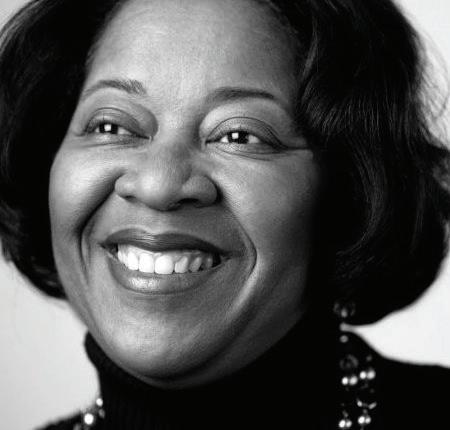
For Dr. Campbell, joy comes not from recognition but from witnessing the success of others. She finds fulfillment in connecting people, building community, and creating spaces filled with laughter, learning, and purpose. “When you help someone succeed and they go on to help others, that is a reward beyond measure,” she says.
Silent leaders like Dr. Campbell reminds us that influence isn’t always loud; sometimes it’s found in the steady guidance, humble service, and genuine care that ripple through generations. True leadership, after all, isn’t about being seen, it’s about leaving a legacy that endures long after you’ve stepped out of view.
“When you help someone succeed and they go on to help others, that is a reward beyond measure.” -Dr. Kim Campbell
Note: Dr. Kim M. Campbell, PhD, CDP, ICC is an executive at Nationwide Children’s Hospital and serves as their Senior Talent Development Consultant – School Partnerships

COMING 2026



